1027 episodes
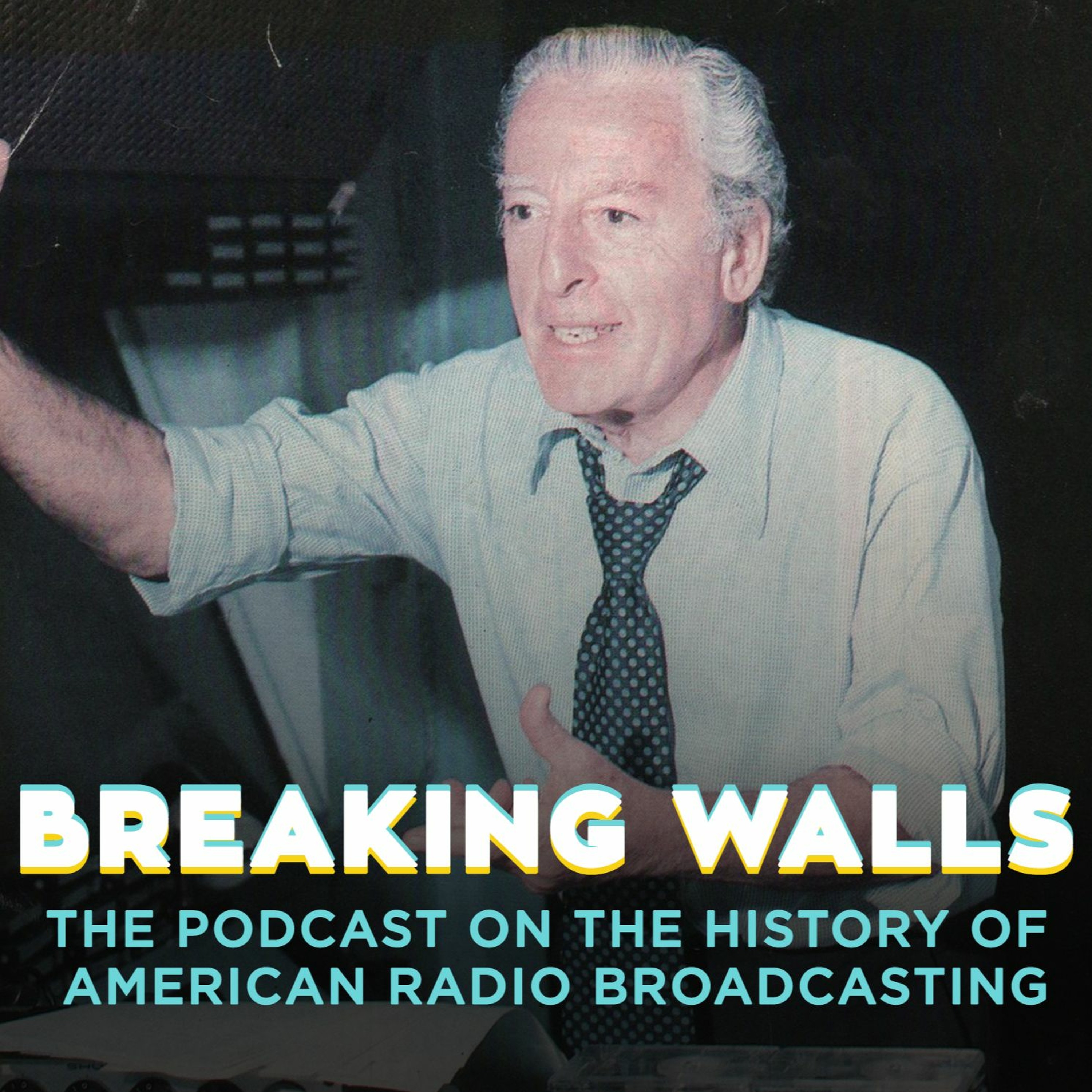

At 3:30PM over Mutual’s WOR in New York, Bulldog Drummond took to the air. It was directed by the just-heard Himan Brown. It starred Santos Ortega, known as Sandy to his friends. Jackson Beck was the announcer. Bulldog Drummond was a British inspector popularized in the Paramount detective films of the 1930s. It was first broadcast April 13th, 1941. It spent its entire nearly eight year run on the Mutual Broadcasting System. Opposite Bulldog Drummond, WEAF ran The Army Hour, while WJZ aired Hot Copy.
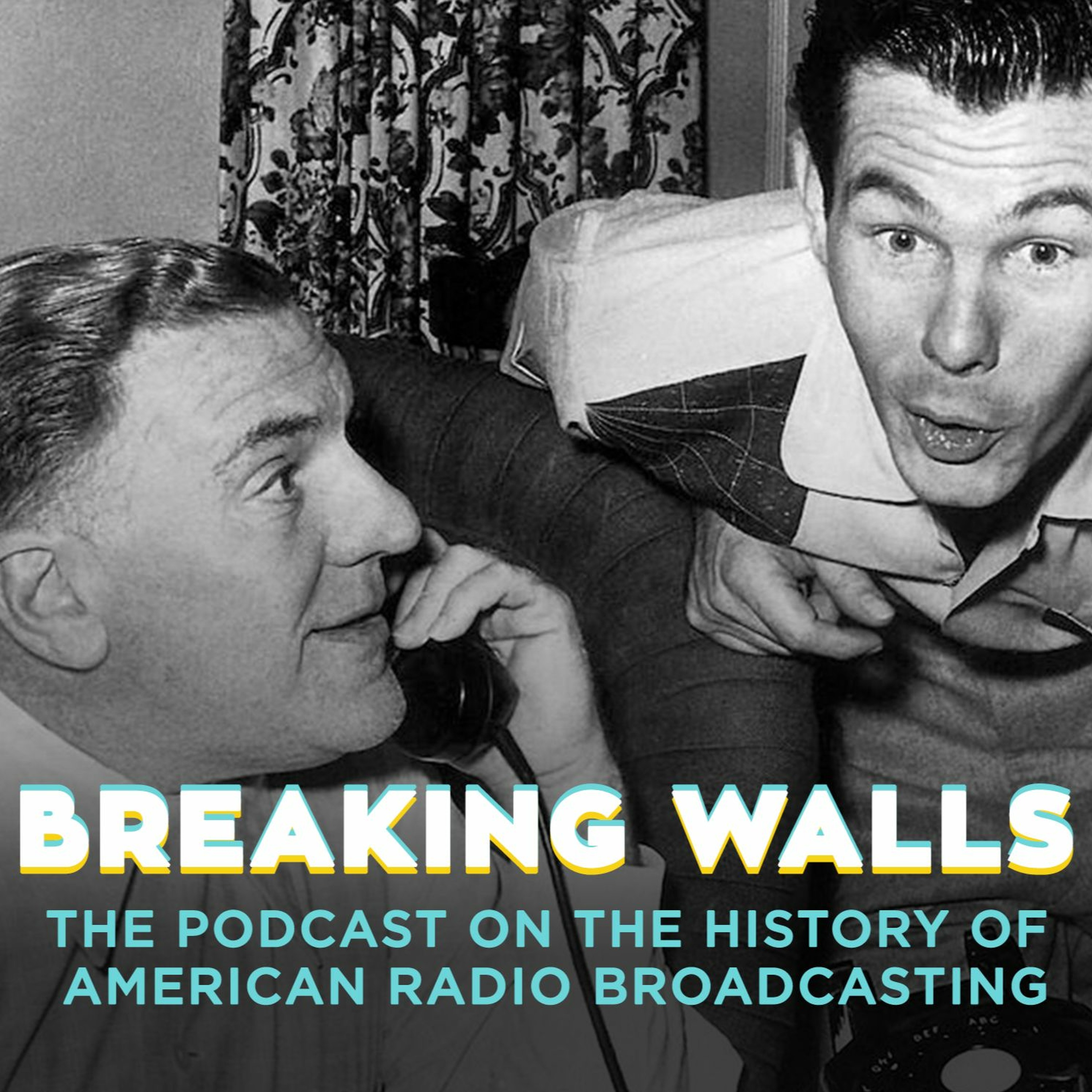

The man you just heard was radio legend Hans Conreid, known as one of the most versatile actors of the 20th century. He could adroitly handle comedy, variety, or serious drama while speaking any dialect convincingly. On April 9th 1944 at 3PM eastern time over WJZ and at 12PM pacific time on KECA, Conreid was busy playing Uncle Baxter on The Life of Riley. Created by Irving Brecher, the best-known incarnation of The Life of Riley came to the air Sunday January 16th, 1944 at 3PM eastern time over The Blue Network. It starred William Bendix as Chester A. Riley and was sponsored by The American Meat Institute. Riley was easily exasperated, but difficult to defeat. The difficulty increased by degrees with the flimsiness of Riley’s cause. Bendix came out of the New Jersey Federal Theater project, a latecomer to the profession, beginning at thirty when the grocery store he was running went out of business. His film career began in 1942. He was often the hooligan with the heart of gold. Riley was his most famous character. It co-starred the previously heard Hans Conreid as Uncle Baxter with John Brown as both Riley’s friend Gillis and the undertaker, Digger O’Dell. Paula Winslowe was Riley’s long-suffering wife Peg. Sharon Douglas was Babs and Conrad Binyon played Junior. The Life of Riley proved popular enough that in June it was moved to Sundays at 10PM. Beginning in the fall of 1945 it moved to NBC where it was a mainstay for six seasons. It peaked in 1947-48 with a rating of 20.1, good for fourteenth overall that year. A TV version debuted in October of 1949, first with Jackie Gleason as Riley and later with William Bendix playing the familiar role for five years.
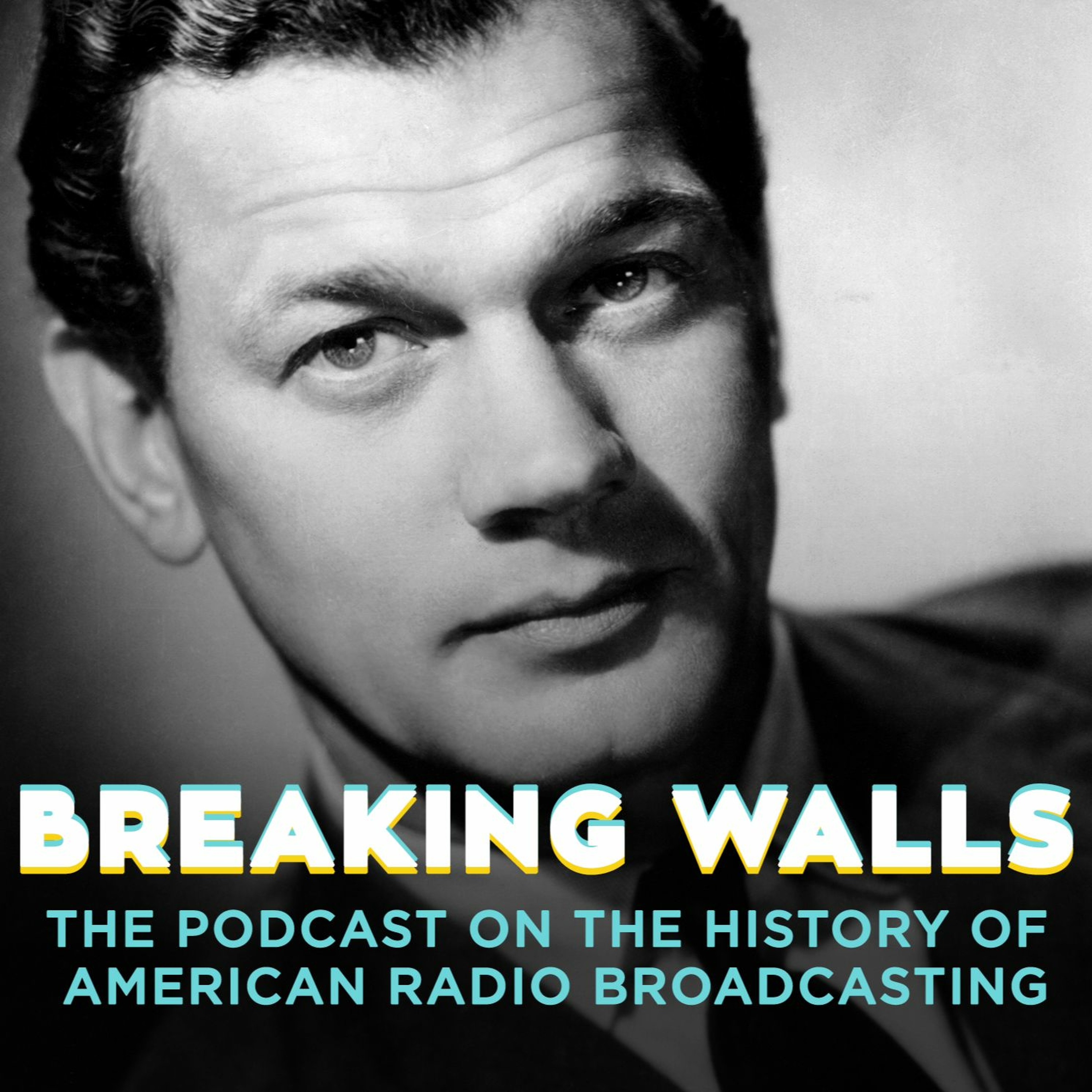

Between 12 and 2PM, news, religious, and war programming filled the radio dial. Standouts included the Salt Lake City Tabernacle Choir and Organ at noon on CBS, Soldiers of the Press at 12:30 on Mutual, and The Chicago Roundtable at 1:30 on NBC. Ceiling Unlimited began as a series of informative dramas by Orson Welles in November 1942. It was sponsored by Lockheed Vega Aircrafts and showcased aviation's role in World War II. Welles walked out in February 1943 after a blowup with one of the ad agency men. Author James Hilton took over. It became a Hollywood variety series in August 1943. Joseph Cotten hosted with Patrick McGeehan as announcer and both Connie Moore and Nan Wynn providing vocals arranged by Wilbur Hatch. This Easter episode took to the air at 2:00PM, from WABC, which at that time were still the call letters for CBS’ New York City Affiliate. The Blue Network’s New York flagship, WJZ aired Chaplain Jim U.S.A., while WEAF aired a play called “Those We Love.”
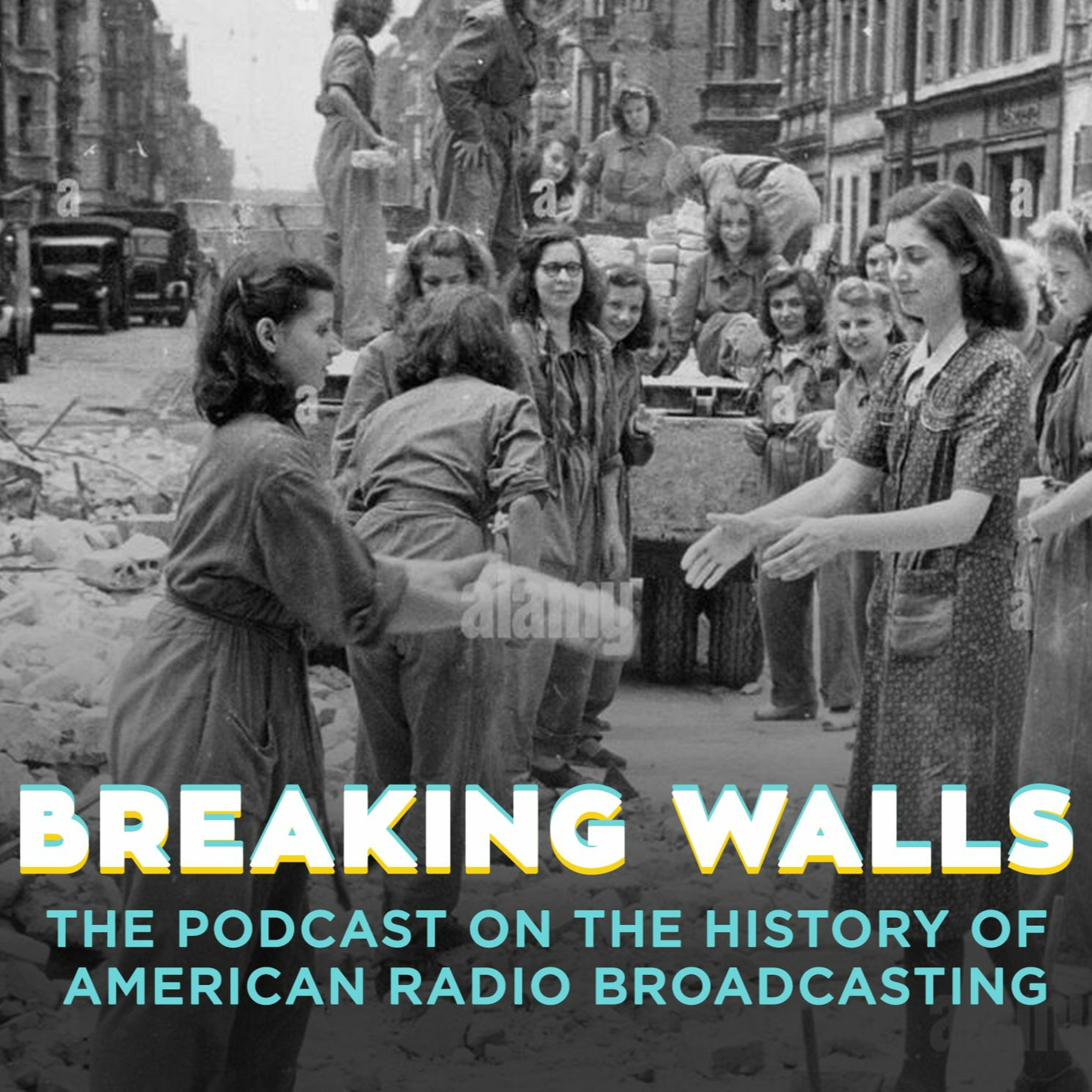

Saturday April 8th, 1944. New York City. It’s a rainy day before Easter and World War II news is dominating consciousness. There are cracks in Germany’s foundation. On Tuesday April 4th, allied surveillance aircrafts photographed the Auschwitz concentration camp. Knowing this, the Nazis will spend the next four months using the gas chambers and incinerators to their full capacity. Twenty-thousand people could be murdered each day. The Germans have lost five u-boats in three days on both fronts while simultaneously facing heavy fighting against the Soviets in Ukraine. They’ve been repeatedly forced to retreat. On Good Friday, April 7th, Adolph Hitler suspended all law in Berlin and made Joseph Goebbels the sole administrator of the city. On this day, April 8th, The Battle of the Tennis Court began in Burma, while Soviet forces invaded Romania. At the same time, U.S. bombers shelled Brunswick. The early 1944 Bombings of German cities gave German citizens their first hard evidence that the tide of the war had turned. And everyone in Europe knew a full scale Allied western invasion was coming. Amidst the gloom, at 1:45PM from WEAF in New York, John McVane took to the air with NBC’s War Telescope looking at both war news and peacetime negotiation. Saturday’s New York Daily News reported on the U.S. navy’s recent sinking of forty-six Japanese ships, while they shot down more than two hundred planes in a three day period. Inflation hadn’t risen in an entire year, as Americans looked forward to international air travel after the war. It made for an interesting Easter Sunday forecast. ___________ It’s 11:30AM on a rainy Easter Sunday, April 9th, 1944 in New York. We’re taking a ride inside a 1942 Oldsmobile B44 coupe. There have been no new automobiles manufactured in the U.S. since February 1942. All resources have been put towards the war effort. We’ve just switched on the radio to CBS’s New York affiliate. Invitation To Learning is about to air. First taking to the air on May 26th, 1940, it was chaired by Lyman Bryson with a rotating panel. Based on a class at St. John’s College in Annapolis, Invitation To Learning was developed at the suggestion of Stringfellow Barr, school president, who also served on the CBS Adult Education board. By exploring classic literature, Barr contended that radio could be a keynote in liberal education. Three or four people had a spontaneous discussion about a particular book. For twenty-four years and more than twelve-hundred episodes, the show sparked as much debate amongst listeners and rival networks as the programs themselves. Notable guests included Norman Corwin, John Houseman, Eva LeGallienne, Herbert Hoover,, Hans Conried, and Lillian Gish. Opposite on NBC’s WEAF was a commentary from Don Hollenbeck, while Mutual’s WOR broadcast an Easter Sunrise Service from the Hollywood Bowl, and The Blue Network’s WJZ broadcast The Hour of Faith.
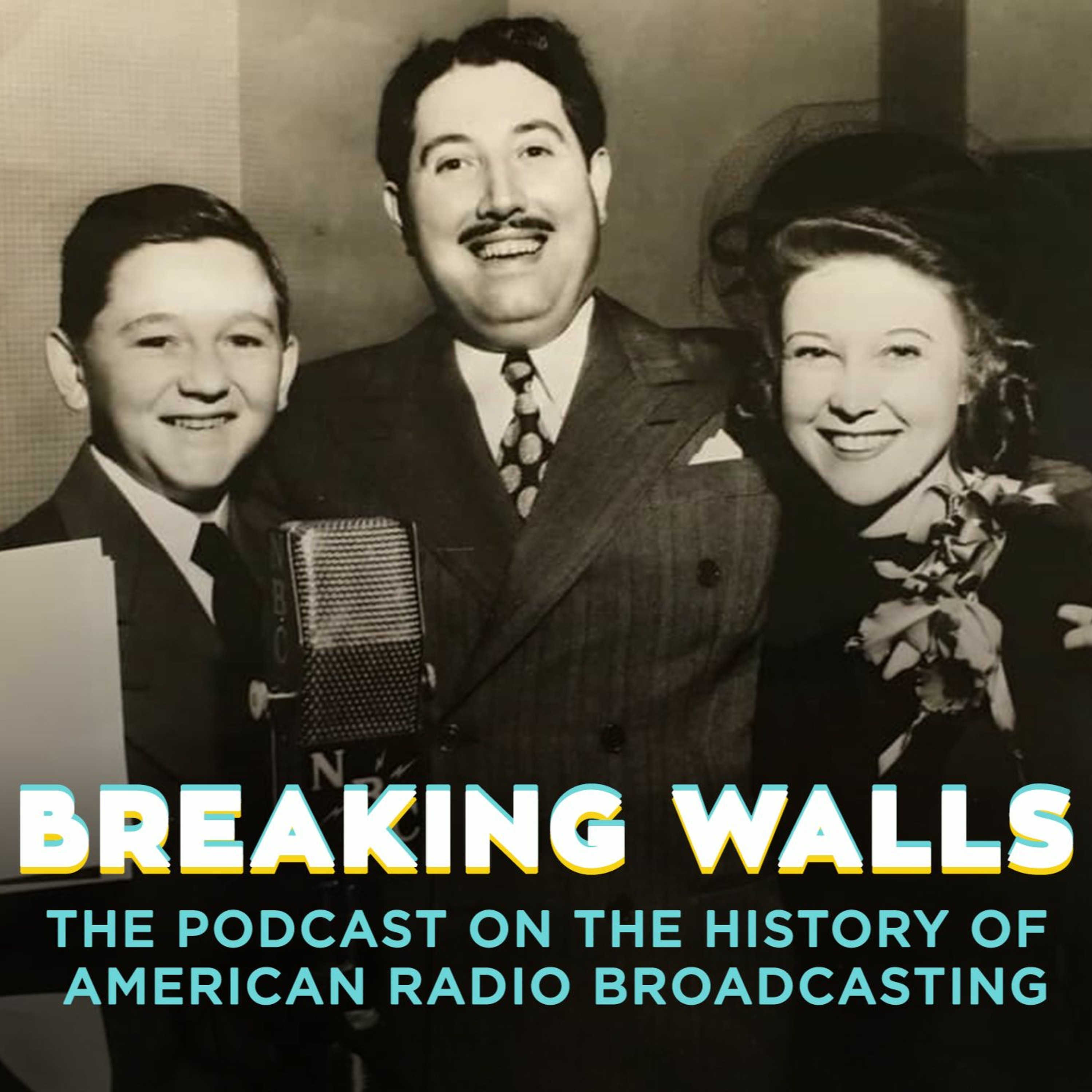

In Breaking Walls episode 149 we’ll spend March of 1944 with Hal Peary and The Great Gildersleeve. —————————— Highlights: • The Men And Women On The Front Lines of War War II in March 1944 • Hal Peary and the Birth of Gildersleeve on Fibber McGee and Molly • The First Ever Sitcom Spin Off and The Great Gildersleeve Premieres • Registering To Vote • Mid March 1944 News with NBC War Telescope • Gildy Wants to Run For Mayor • The Campaign Photo • A Night In A Foxhole • Looking Ahead to Easter Sunday 1944 —————————— The WallBreakers: http://thewallbreakers.com Subscribe to Breaking Walls everywhere you get your podcasts. To support the show: http://patreon.com/TheWallBreakers —————————— The reading material used in today’s episode was: • On The Air — By John Dunning • Network Radio Ratings — By Jim Ramsburg As well as articles from: • Broadcasting Magazine • The Library of Congress • The New York Times • Radio Daily —————————— On the interview front: • Ken Carpenter, Alice Faye, Shirley Mitchell, Frank Nelson, Hal Peary, Lilian Randolph and Lurene Tuttle spoke with Chuck Schaden. Hear these chats at Speakingofradio.com. • Shirley Mitchell also spoke with Jim Bohannon in 1987. • Howard Duff spoke to Dick Bertel and Ed Corcoran for WTIC’s The Golden Age of Radio. Hear these interviews at Goldenage-WTIC.org • Don Quinn spoke with Owen Cunningham —————————— Selected music featured in today’s episode was: • Besame Mucho — By Jimmy Dorsey and His Orchestra • Danse Macabre — By Camille Saint-Saëns —————————— A special thank you to Ted Davenport, Jerry Haendiges, and Gordon Skene. For Ted go to RadioMemories.com, for Jerry, visit OTRSite.com, and for Gordon, please go to PastDaily.com. —————————— Thank you to: Tony Adams Steven Allmon Orson Orsen Chandler Phil Erickson Gerrit Lane Jessica Hanna Perri Harper Thomas M. Joyce Ryan Kramer Earl Millard Gary Mollica Barry Nadler Christian Neuhaus Ray Shaw Filipe A Silva John Williams Jim W. —————————— WallBreakers Links: Patreon - patreon.com/thewallbreakers Social Media - @TheWallBreakers
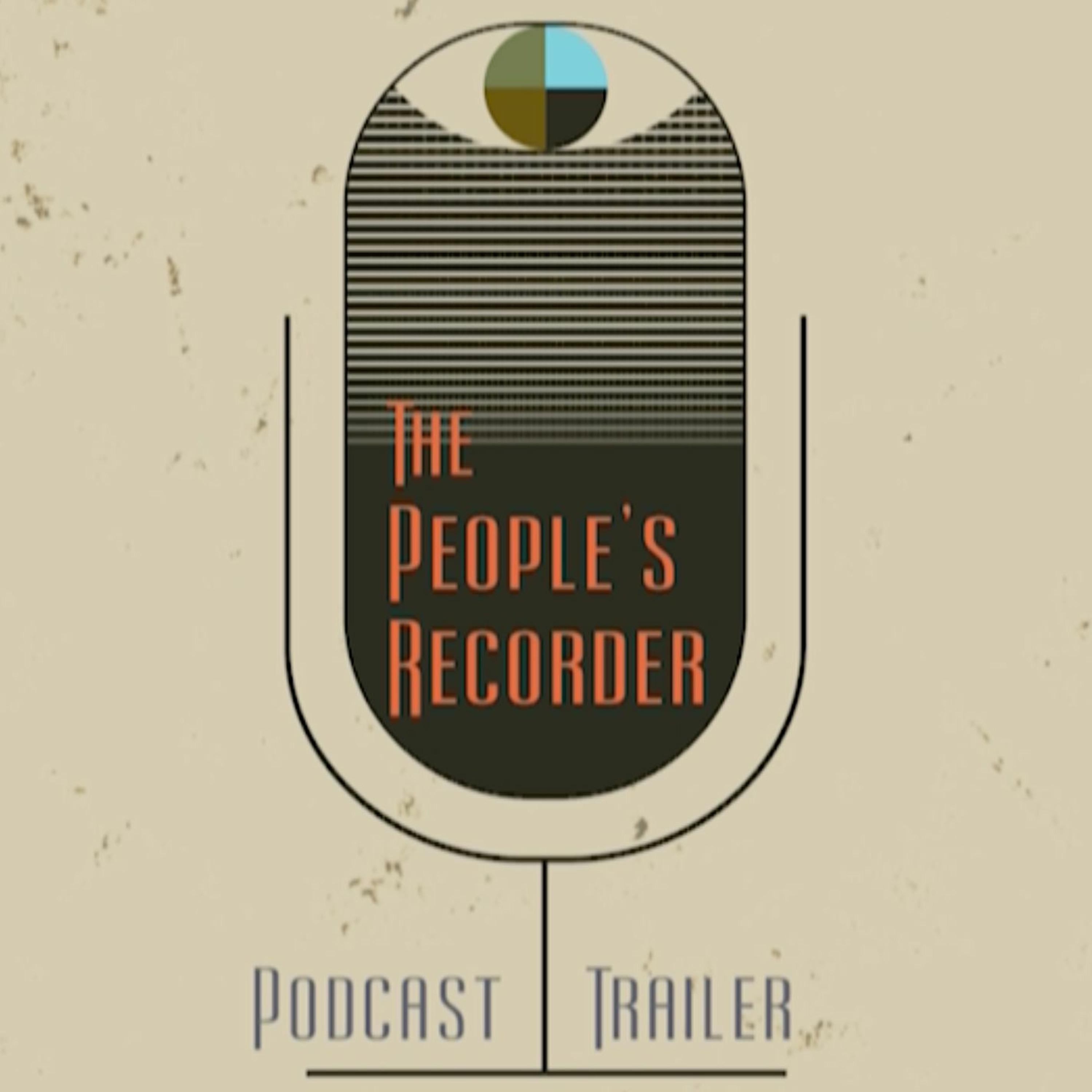

This is the trailer for The People's Recorder (https://www.peoplesrecorder.info/). Brought to you by the award-winning Spark Media, The People's Recorder is a national podcast on the 1930s Federal Writers' Project: what it achieved, where it fell short, and what it means for Americans today. The Federal Writers' Project employed thousands of out-of-work writers across the country to document American life during a national disaster -- the Great Depression -- and “hold a mirror up to America.” What they produced was a series of state and city guidebooks and life-story interviews and recordings with everyday Americans. In creating the nation’s first self-portrait, they sparked questions about how we document history and whose stories get told. The People's Recorder takes you on a journey with the people who lived it. We explore the Project’s legacy, what it achieved, where it fell short, and what it means for Americans today. The first season of 10 episodes will take listeners on a wild ride across the country: undercover Black historians behind the frontlines of the Jim Crow South, documentarians of the Gulf Coast’s cultures, champions of indigenous history in the Midwest, and gurus of migration in the West. Episodes will drop monthly with bonus material released between each episode. You can subscribe and download anywhere you'd get a podcast.
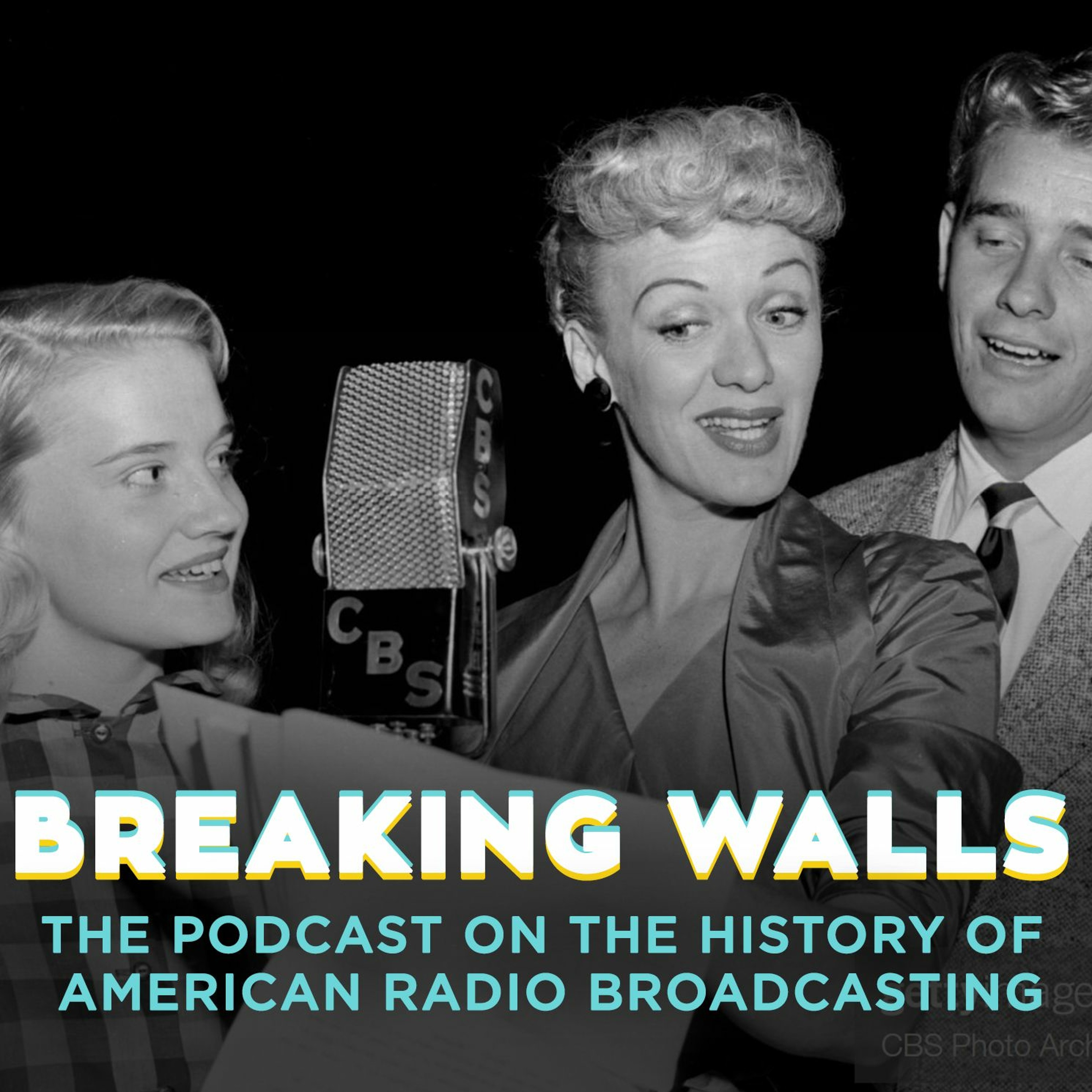

Hey everybody James Scully here, host of Breaking Walls. If you've been listening to this show for years on this RSS feed, I want you to know that you can also subscribe to the show on Youtube — https://www.youtube.com/@thewallbreakersllc. I'm asking people who listen here on the RSS feed to subscribe on Youtube because Youtube offers the easiest path to monetizing this show. I'm going to be fully transparent right now: There have been times in the history of this podcast that via RSS feed, Breaking Walls has had as many as 27000 - 30000 monthly downloads, but even with that, it's very hard to monetize the show via traditional podcast channels. However, I've been able to clear the monetization hurdles on Youtube, so please subscribe there. If you happen to listen on a computer or on a phone, I would appreciate if you listened via Youtube. I'm also going into Youtube and slowly uploading all shows from Breaking Walls' archive in individual podcast playlists on Youtube. This way, everything that for years now has fallen off the RSS feed here doesn't matter. You can get all those archived shows FREE OF CHARGE on Youtube. Your listening for free will enable me to earn money, and I'd appreciate that very much. So once again — https://www.youtube.com/@thewallbreakersllc Keep getting out there, keep breaking those walls, and I'll catch you on the flip side.
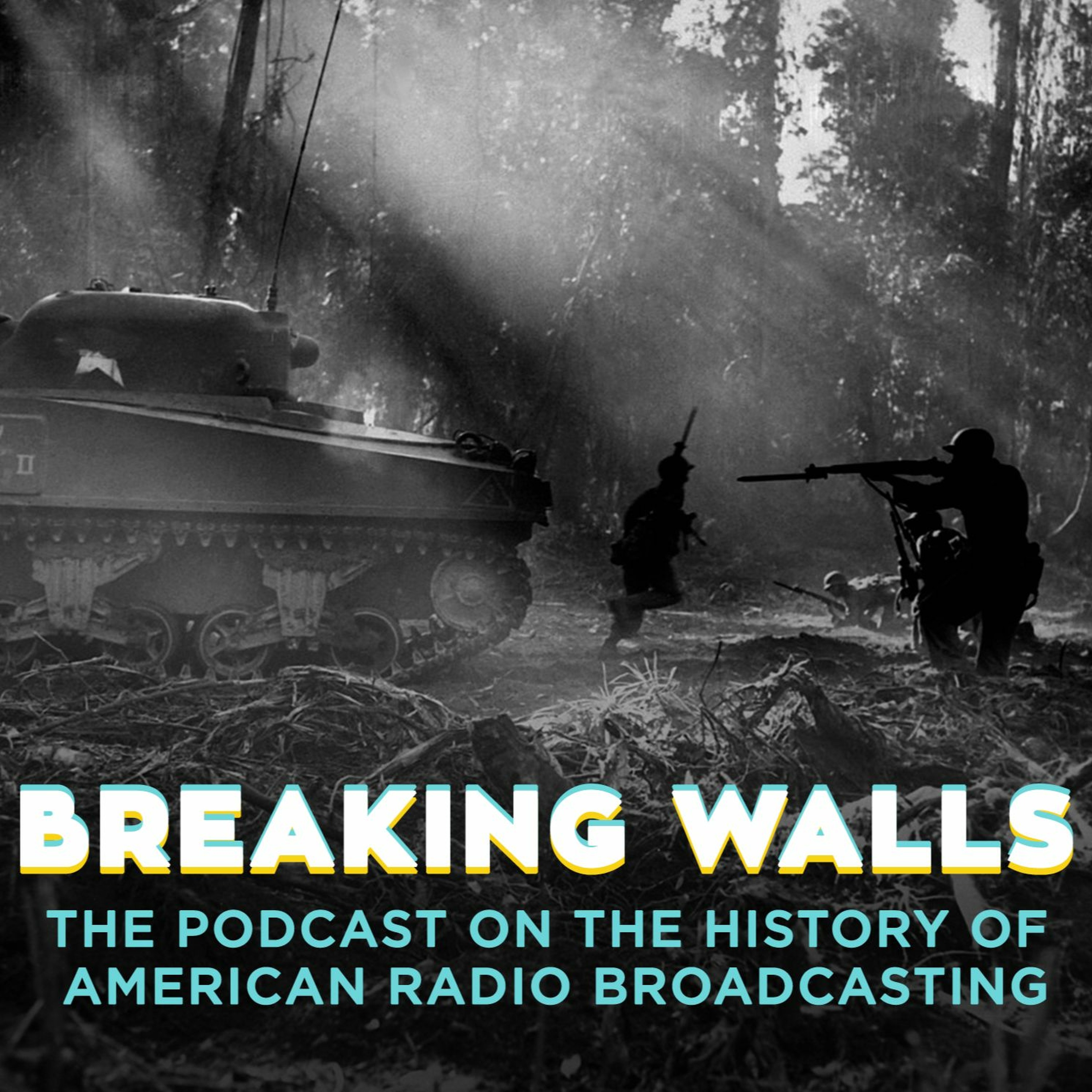

On Sunday, March 19th, 1944 Germany forcefully occupied Hungary to prevent the country from making a separate peace agreement with the Soviet Union. Within two days, German authorities forced all Jewish businesses to close, sending hundreds to internment camps. On March 20th, The Battle of Sangshak began in Manipur, India, while U.S. Marines landed on Emirau as part of Operation Cartwheel. The next day they linked with Australian troops on New Guinea's Huon Peninsula. On Wednesday March 22nd, the US OSS began Operation Ginny II, intending to cut German lines of communication in Italy, but once again failed when the team landed in the wrong place and were captured. Volcanic rock of all sizes from Mount Vesuvius began raining down from the sky, forcing massive evacuations. German soldiers killed several civilians in Montaldo, Italy who were part of an Italian resistance group. The next day the group planted a bomb, killing thirty-three SS members in Rome. The Nazis swiftly retaliated, killing three-hundred-thirty-five people accused of helping the cause. Meanwhile, allied forces withdrew from Monte Cassino and the offensive was called off in favor of Operation Strangle, a series of air maneuvers aimed to cut German supplies from the Italian front. That Friday, March 24th, 1944, the Mutual Broadcasting System broadcast a special recording made by marine Technical Sergeants Fred Welker and Keene Hepburn. During the early part of the war Dr. Harold Spivack, Chief of the Music Division of the Library of Congress, and Brigadier General Robert Denig, wartime director of Marine Corps public information, formulated a plan to give a few Marines recording devices to take into the field so the public at large would understand what these men were experiencing. Recordings began in late 1943.
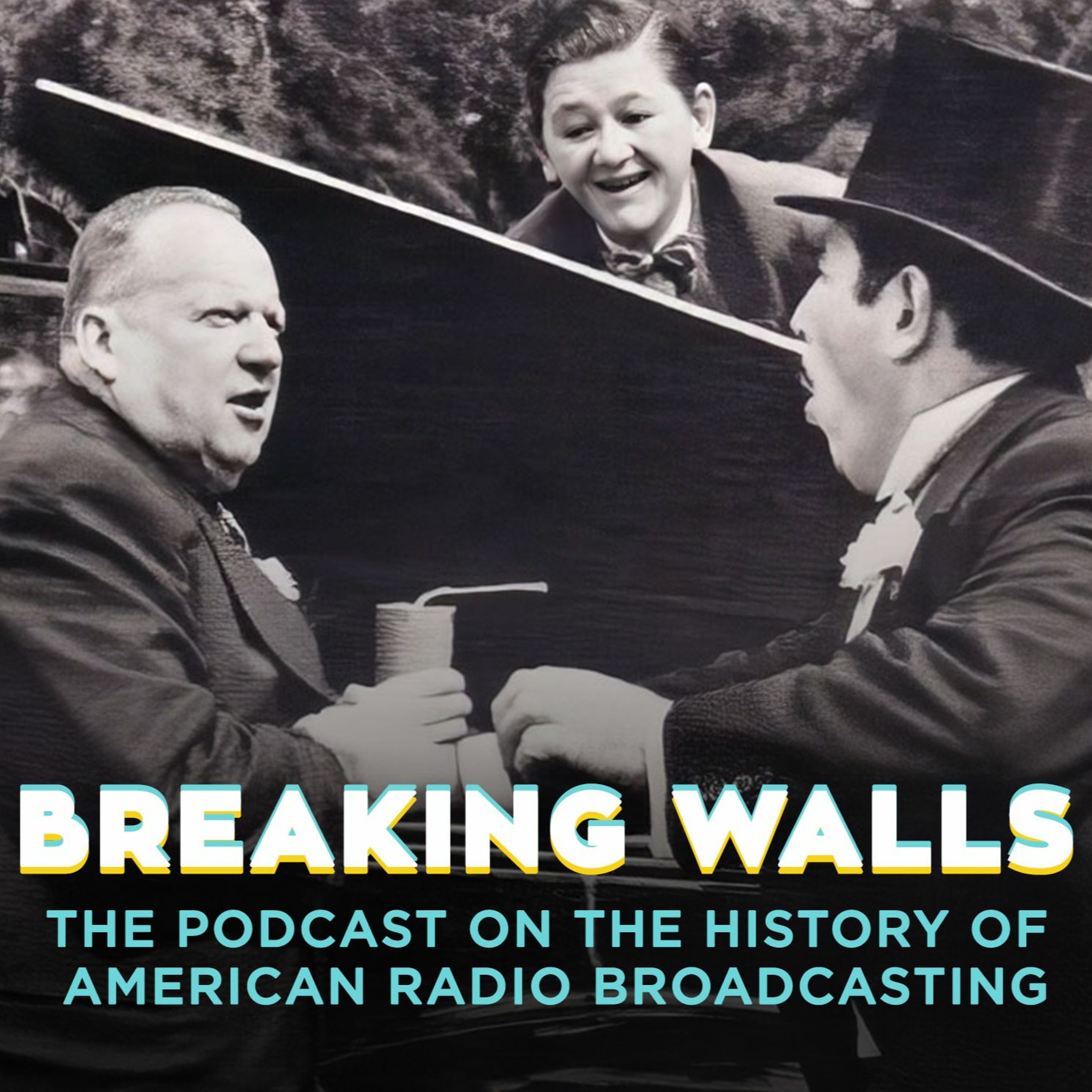

By Sunday March 26th, 1944, with Easter only two weeks away, Gildy had decided to run for mayor. Naturally, he needed a good campaign photo to go with it. By this time, Peary had become a film star, starring as Gildersleeve in both shorts and feature-length films.
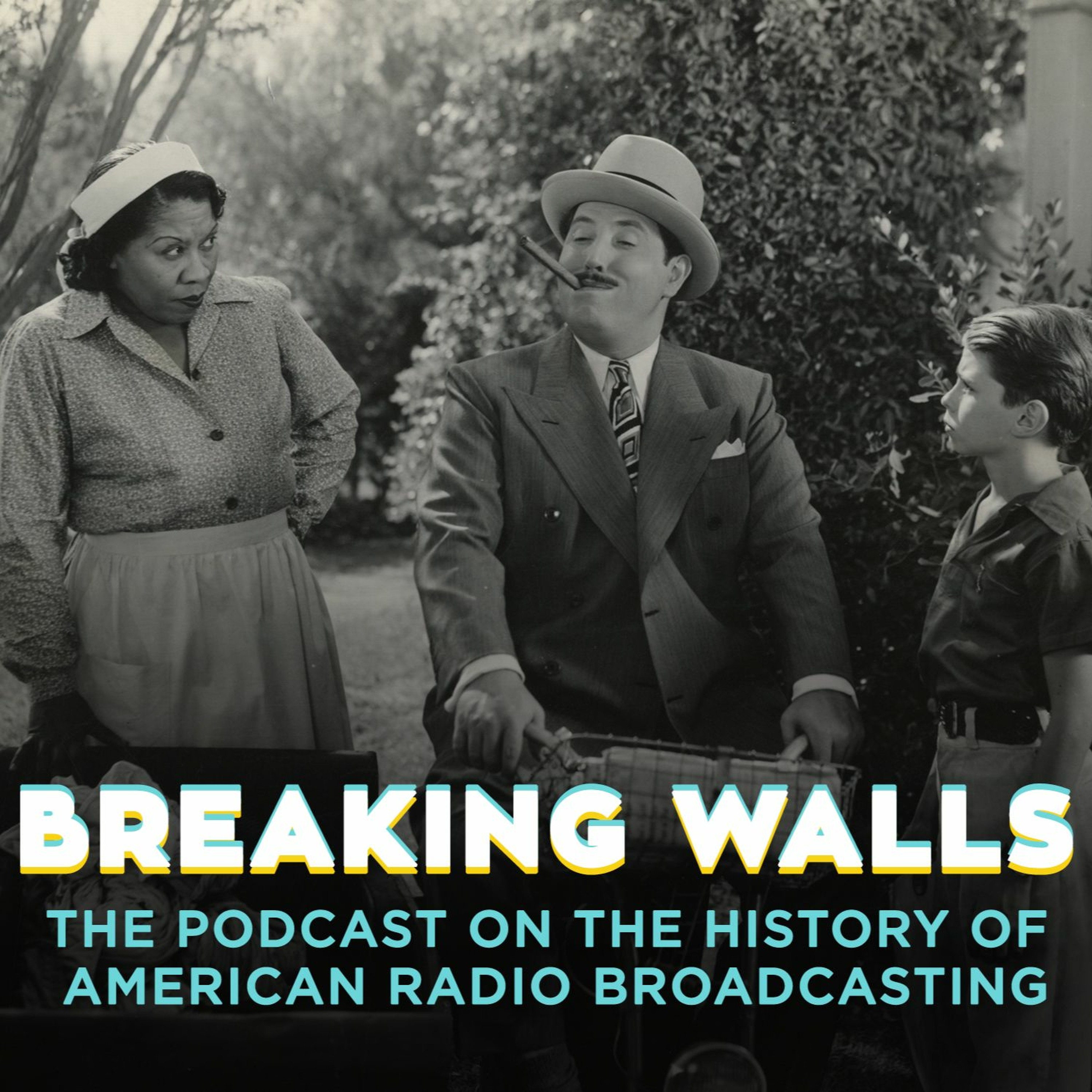

As the first day of Spring approached, Gildersleeve contemplated running for Mayor of Summerfield on March 19th. Shirley Mitchell voiced Leila Ransom. Ken Carpenter, by then a famous announcer, was the Kraft spokesperson.


On Wednesday March 15th, 1944 during battle, the allies dropped nearly one-thousand tons of bombs and two hundred thousand rounds of artillery on the Monte Cassino Monastery, while trying to storm the building. They were unable to dislodge the Germans. The allies were having more success sinking submarines. Over the next forty-eight hours Allied forces sank one Japanese and three German subs. On Thursday at a National Advisory Committee for Aeronautics seminar in Washington, D.C., NACA personnel suggested a jet-propelled airplane be developed. On Friday the 17th Mount Vesuvius erupted, destroying nearly ninety American aircraft and displacing twelve-thousand italians, while Soviet forces took Dubno and Zhmerynka. The Soviets were set to begin their third Narva Offensive on Saturday as German soldiers began massacring people in both Romania and Italy. The Germans were facing heavy bombing at home, and all of Europe knew an allied invasion was coming. NBC’s War Telescope took to the air over WEAF in New York at 1:45PM.
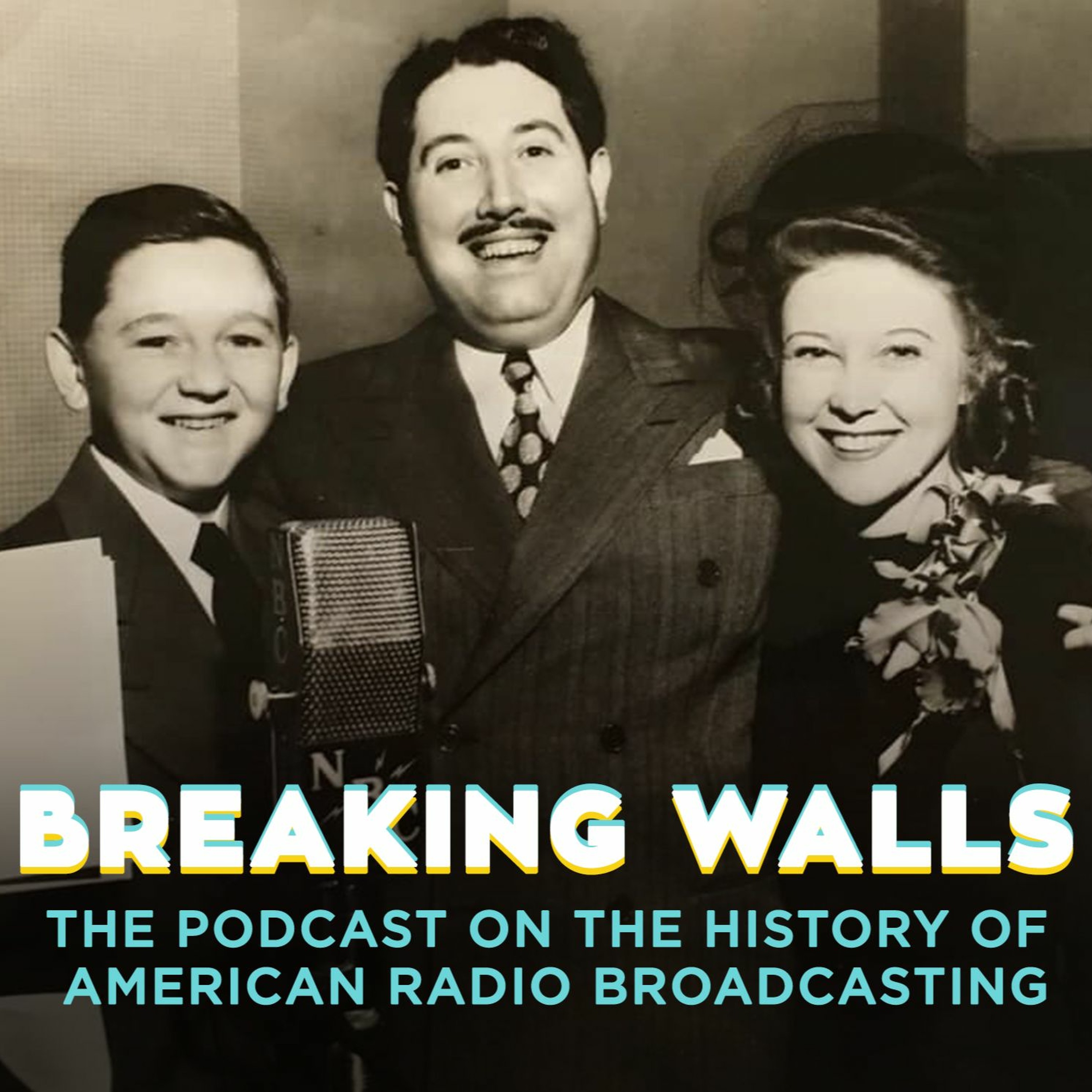

By December of 1941 The Great Gildersleeve was such a hit that Kraft ordered thirteen weeks of repeats for eight more west-coast NBC stations to air Thursdays at 6:30PM beginning in January. The program would now air on sixty total NBC stations. Summerfield was a pleasant slice of rural Americana. Most of the action took place in an eight-block area. There was a city park with an old-fashioned bandstand and a large reservoir that would soon come to play a major role. On October 18th, 1942 Gildersleeve would be appointed water commissioner, beginning an illustrious career that might be described as doing nothing at all. The Great Gildersleeve’s rating cracked the top fifty in the first year. It rose to twenty-fourth in 1943, and by November it was pulling an 18.1. In the middle of March 1944 it was up to 19 points, good for fifth overall on Sundays. On March 12th at 6:30PM eastern time, The Great Gildersleeve took to the air with an episode on the importance of registering to vote. In his early twenties, Walter Tetley was already a radio veteran, having worked on The Children’s Hour, The Fred Allen Show, Raising Junior, and many other programs. As Leroy, he was a perfect deflater of Gildy’s tender ego. "Are you kiddin’?” he would snarl, bringing out the inevitable Gildersleeve retort—“Leee-eee-roy!” To Leroy, Gildy was simply “Unk,” a guy whose performance was usually out-stripped by his intentions. "What a character!” Leroy would bleat as he caught his uncle in the fib of the week. He later worked with Phil Harris and Alice Faye. By 1944, then thirty-seven, Lurene Tuttle was one of the most versatile actresses on the air, capable of playing any part that required any age, and almost any dialect. Lilian Randolph played Birdie Lee Coggins, housekeeper and voice of reason. Of note, this recording came courtesy of the Armed Forces Radio Service. At this time, Howard Duff, still an unknown actor, was working for the AFRS and recutting many shows to get them on the air for enlisted servicemen around the world.
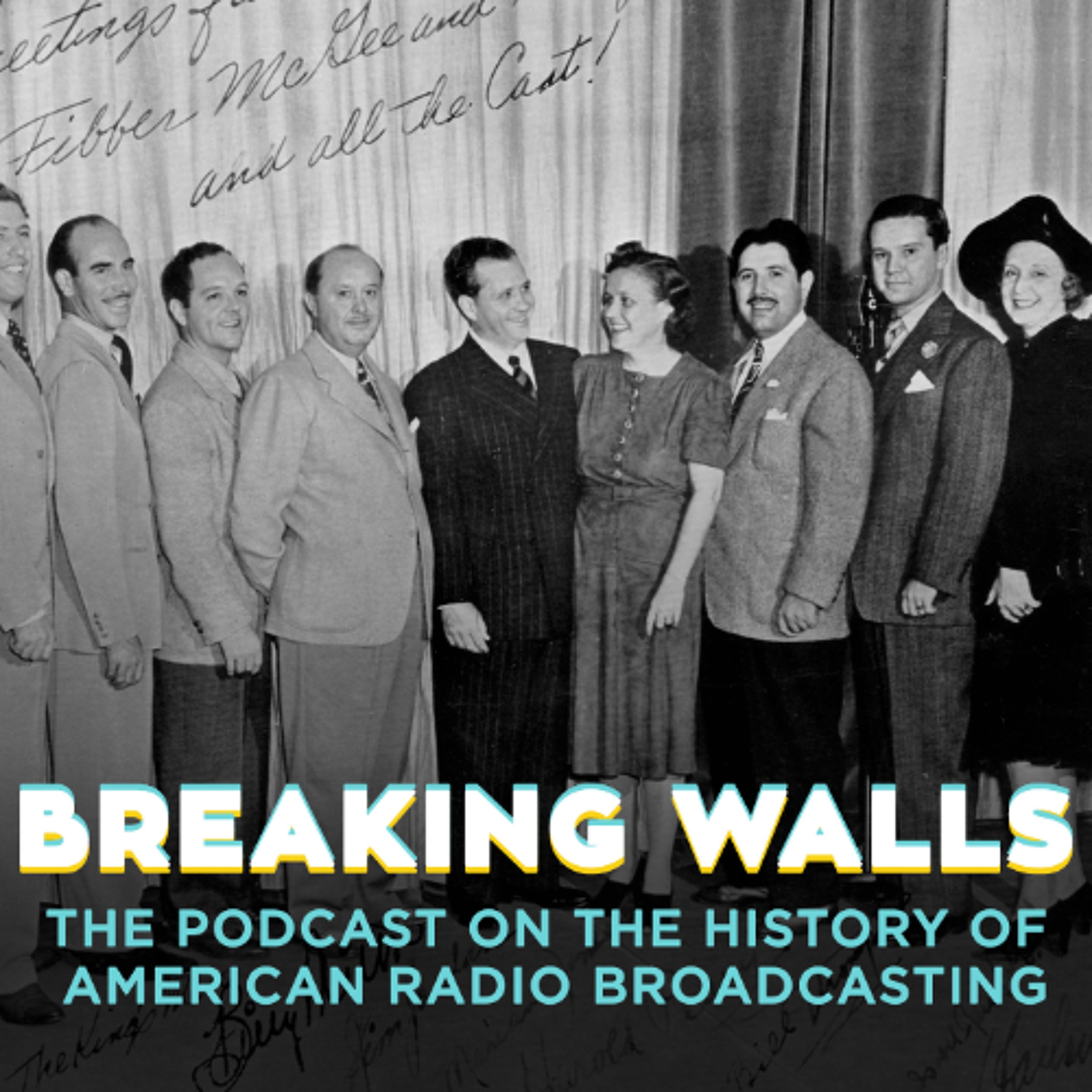

Hal Peary was born Harrold José de Faria to Portuguese parents on July 25th, 1908. He was fourteen when, in January of 1923, he made his radio debut on KZM in Oakland. By the late 1920s he was working for NBC in San Francisco. Migrating to Chicago in 1937, he soon became one of radio’s insiders, gaining a reputation as a top utility man. In 1937 he joined the cast of Fibber McGee and Molly playing every kind of bit part imaginable. In the late 1930s, Peary approached McGee’s head writer Don Quinn with an idea for a recurring role. He wanted to play a pompous windbag who himself ran the biggest bluff in Wistful Vista. He thought it would be the perfect foil for McGee. Quinn was the kind of man who innately understood how to write for radio. For Quinn it was simply a matter of creating Throckmorton Gildersleeve, moving him to 83 Wistful Vista, and letting the fur fly. Throckmorton P. Gildersleeve’s first appearance was on September 26th, 1939. Quinn knew the value of sarcasm in comedy. It was also later revealed that Gildersleeve’s middle name was “Philharmonic.” By 1941 the character proved so popular that it was decided to spin Gildersleeve off into its own show. An audition was recorded on May 16th. Peary’s last regular appearance on Fibber McGee and Molly was on June 24th in a memorable scene. McGee and Molly are headed to Hollywood for the summer. Oddly enough by the time they got back, it was Gildersleeve who’d permanently departed from Wistful Vista. Tragically, Gildersleeve’s sister and brother-in-law were killed in a car accident and he needed to go to Summerfield to oversee their estate and raise his orphaned niece and nephew, Marjorie and Leroy Forrester. He left on August 8th, 1941, creating with him a new American concept: the sitcom spinoff. The show premiered at 2:30PM Pacific Time over KFI in Los Angeles, and at 6:30PM Eastern Time over WEAF in New York. Kraft would sponsor the series. They signed on for thirty-nine weeks over twenty-eight NBC Red Network stations. Gildersleeve’s first head writer was Leonard Levinson. The character’s long-running feud with Judge Hooker began right from this first train ride. Music was done by William Randolph’s orchestra. Cecil Underwood produced the show and Jim Bannon announced. Radio legend Frank Nelson, then on twenty-nine, provided multiple supporting parts in this episode. Walter Tetley played Leroy and Lurene Tuttle played Marjorie.
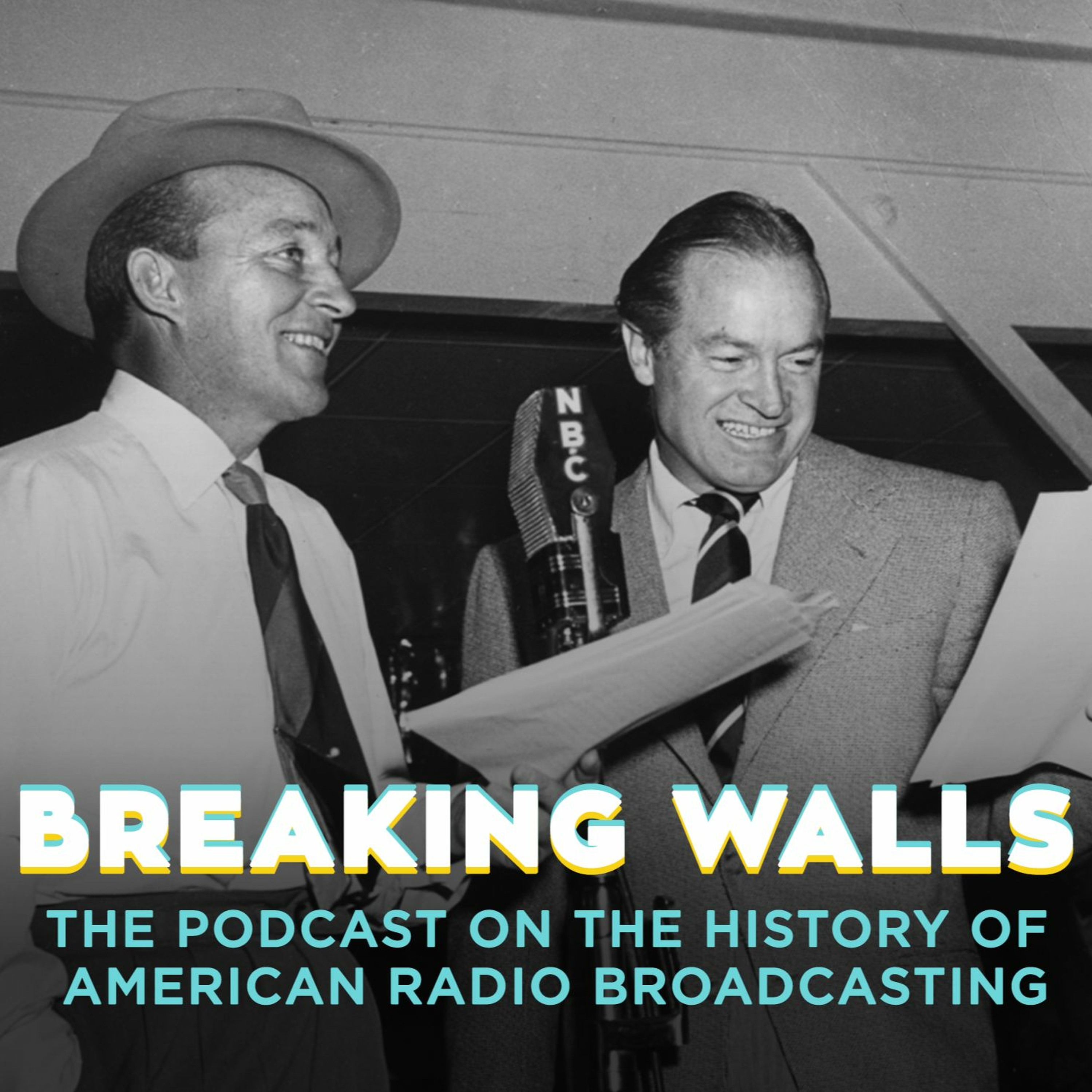

In Breaking Walls episode 148 we spend February of 1944 with America’s top comedian, Bob Hope, as he whisks himself around the country, entertaining troops and broadcasting to the masses. —————————— Highlights: • Leslie Townes Hope’s Rise to Stardom • Broadway and Early Radio Shows • The Big Broadcast of 1938 • The Pepsodent Program • Early February 1944 World War II News • NBC Dominates Tuesday Nights in 1944 • Bob with Guest Ginger Rogers • The 4th War Bond Drive • Command Performance with Bob Hope, Frank Sinatra, and Judy Garland • Mid February World News Roundup • Bob with Guest Bing Crosby • Bob with Guest Carole Landis • News as we Leave February • Bob Gets Sick, Is Honored by The Academy • Looking Ahead to March with The Great GIldersleeve —————————— The WallBreakers: http://thewallbreakers.com Subscribe to Breaking Walls everywhere you get your podcasts. To support the show: http://patreon.com/TheWallBreakers —————————— The reading material used in today’s episode was: • On The Air — By John Dunning • Bob Hope: The Road Well-Traveled — By Lawrence J. Quirk • The Spirit of Bob Hope: One Hundred Years, One Million Laughs — By Richard Grudens • Network Radio Ratings — By Jim Ramsburg • Bob Hope: The Road from Eltham — By Charles Thompson As well as articles from: • Aces of World War II • Broadcasting Magazine • The Military Times • Radio Daily • The Seattle Times —————————— On the interview front: • Bob Hope was with both Dick Cavett in 1972 and Johnny Carson in 1974. • Ken Carpenter, Jim Jordan, Hariet Nelson, Wendell Niles, Hal Peary, and Lurene Tuttle spoke with Chuck Schaden. Hear these chats at Speakingofradio.com • Jim Jordan also spoke to Dick Bertel and Ed Corcoran for WTIC’s The Golden Age of Radio. Hear these interviews at Goldenage-WTIC.org • Red Skelton spoke with Merv Griffin in 1975 • Bing Crosby spoke with Same Time, Same Station —————————— Selected music featured in today’s episode was: • Thanks For the Memory — By Bob Hope and Shirley Ross • Ghost Bus Tours — By George Fenton —————————— A special thank you to Ted Davenport, Jerry Haendiges, and Gordon Skene. For Ted go to RadioMemories.com, for Jerry, visit OTRSite.com, and for Gordon, please go to PastDaily.com. An extra special thanks to Doug Hopkinson who provided the Bob Hope episode with Bing Crosby that aired February 15th, 1944. —————————— Thank you to: Tony Adams Steven Allmon Orson Orsen Chandler Phil Erickson Gerrit Lane Jessica Hanna Perri Harper Thomas M. Joyce Ryan Kramer Earl Millard Gary Mollica Barry Nadler Christian Neuhaus Ray Shaw Filipe A Silva John Williams Jim W. —————————— WallBreakers Links: Patreon - patreon.com/thewallbreakers Social Media - @TheWallBreakers
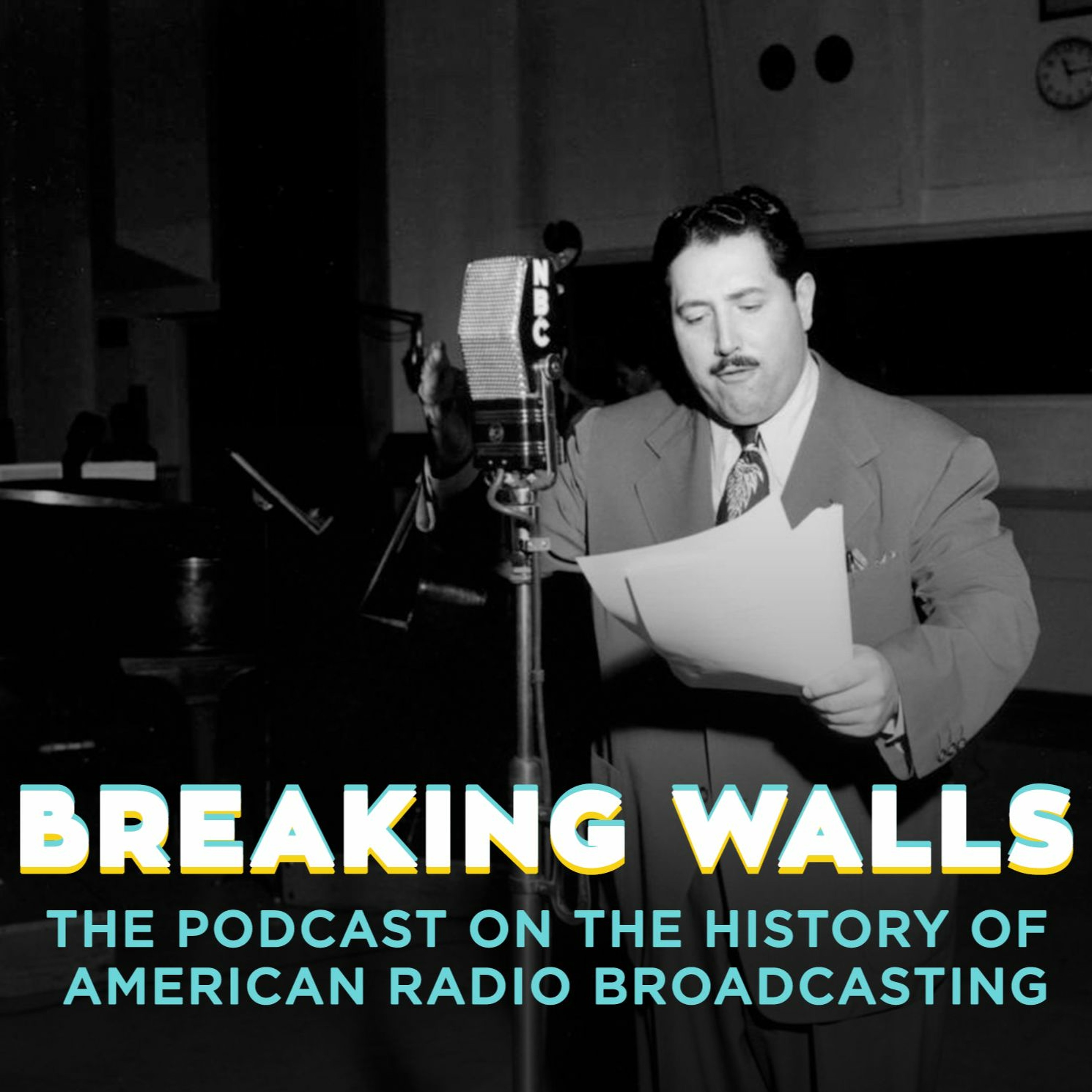

Well, that brings our look at Bob Hope’s career in February of 1944 to a close. We’ll be staying in 1944 the remainder of the year and next month we’ll spend March 1944 with a program considered to be the first spin-off in sitcom history. Next time on Breaking Walls we spotlight Hal Peary and The Great Gildersleeve, which between February and March of 1944 pulled a rating of nineteen points, making it the most-listened to show airing at 6:30PM in radio history. The reading material used in today’s episode was: • On The Air — By John Dunning • Bob Hope: The Road Well-Traveled — By Lawrence J. Quirk • The Spirit of Bob Hope: One Hundred Years, One Million Laughs — By Richard Grudens • Network Radio Ratings — By Jim Ramsburg • Bob Hope: The Road from Eltham — By Charles Thompson As well as articles from: • Aces of World War II • Broadcasting Magazine • The Military Times • Radio Daily • The Seattle Times —————————— On the interview front: • Bob Hope was with both Dick Cavett in 1972 and Johnny Carson in 1974. • Ken Carpenter, Jim Jordan, Hariet Nelson, Wendell Niles, Hal Peary, and Lurene Tuttle spoke with Chuck Schaden. Hear these chats at Speakingofradio.com • Jim Jordan also spoke to Dick Bertel and Ed Corcoran for WTIC’s The Golden Age of Radio. Hear these interviews at Goldenage-WTIC.org • Red Skelton spoke with Merv Griffin in 1975 • Bing Crosby spoke with Same Time, Same Station —————————— Selected music featured in today’s episode was: • Thanks For the Memory — By Bob Hope and Shirley Ross • Ghost Bus Tours — By George Fenton —————————— A special thank you to Ted Davenport, Jerry Haendiges, and Gordon Skene. For Ted go to RadioMemories.com, for Jerry, visit OTRSite.com, and for Gordon, please go to PastDaily.com. An extra special thanks to Doug Hopkinson who provided the Bob Hope episode with Bing Crosby that aired February 15th, 1944. —————————— Thank you to: Tony Adams Steven Allmon Orson Orsen Chandler Phil Erickson Gerrit Lane Jessica Hanna Perri Harper Thomas M. Joyce Ryan Kramer Earl Millard Gary Mollica Barry Nadler Christian Neuhaus Ray Shaw Filipe A Silva John Williams Jim W. —————————— WallBreakers Links: Patreon - patreon.com/thewallbreakers Social Media - @TheWallBreakers
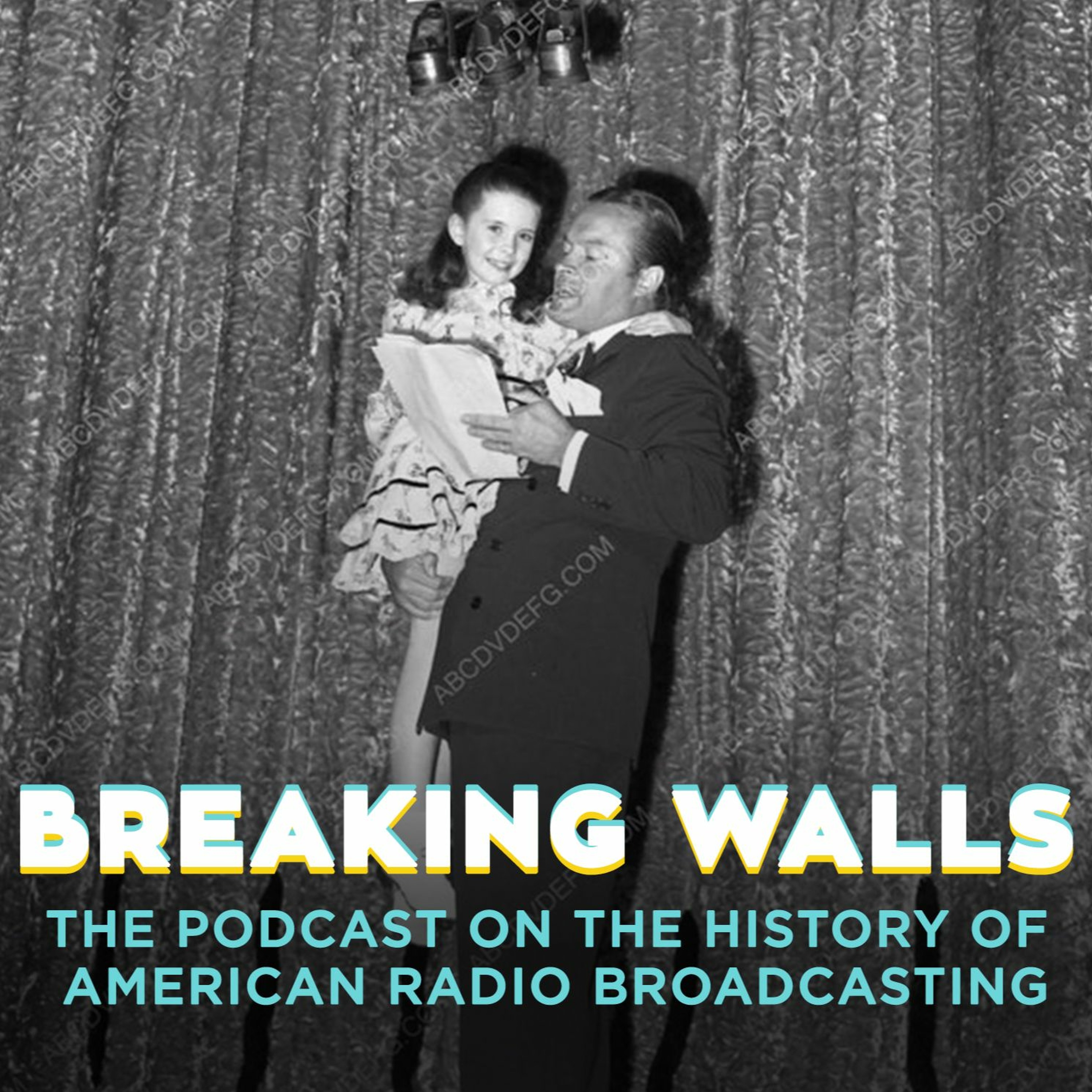

On February 29th, 1944 Bob Hope was supposed to be in Mobile, Alabama for the first leg of a tour. He was unfortunately grounded by a cold. Instead, he broadcast his portion of the show from Hollywood, while the cast broadcast from Mobile. Once able to travel, Hope met his crew in transit, but not before being given a special award for his many services to the Academy at the March 2nd, 1944 Oscars. The Hope show’s itinerary included the Annual White House Correspondents dinner for President Roosevelt on March 4th. On March 7th, the cast would be in Miami; On March 14th in Jacksonville; On March 21st in Macon, Georgia; On March 25th a special from the Cleveland Canteen; and on March 28th, they’d be in Colorado Springs.
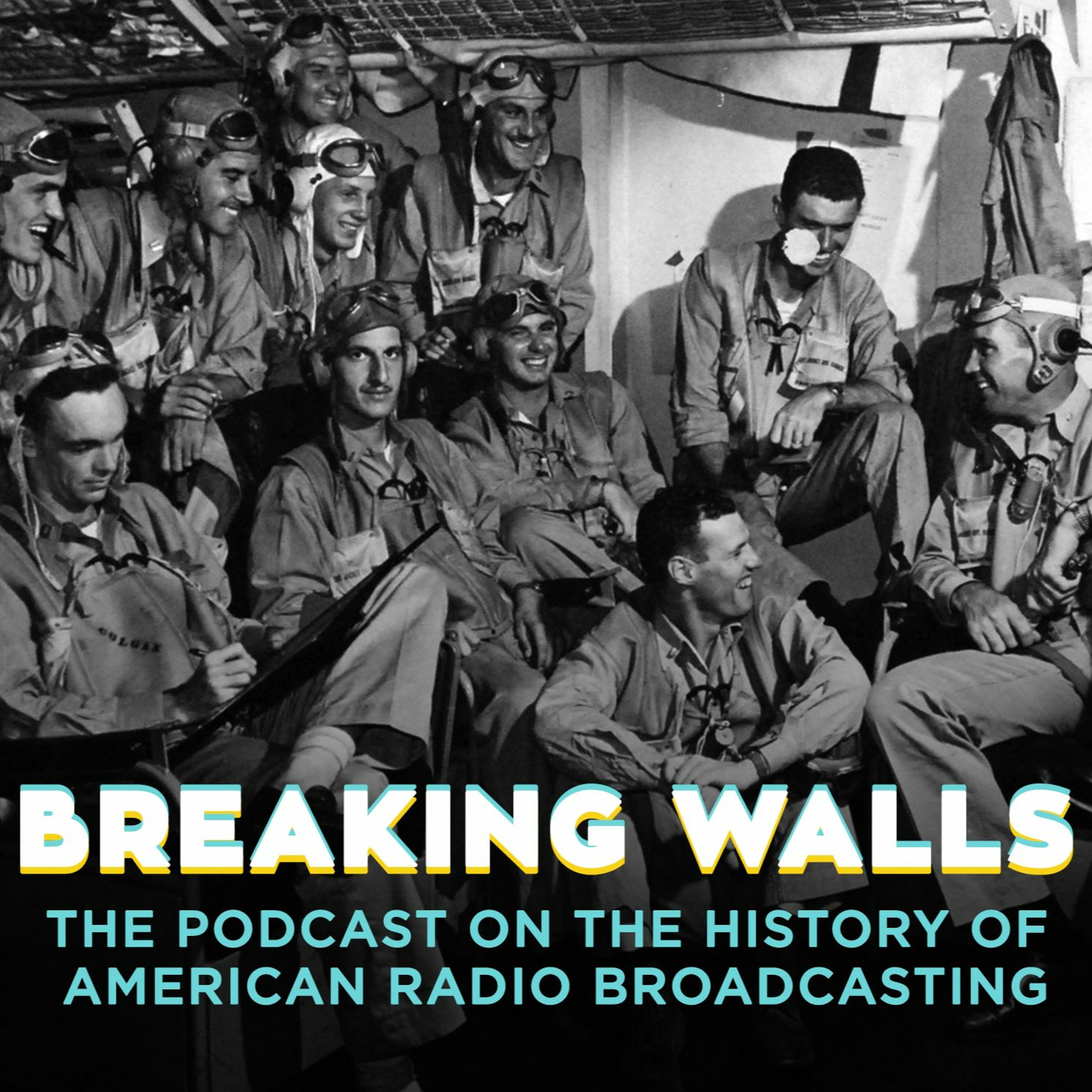

On Friday February 25th, 1944 "Big Week," the allies six-day strategic bombing campaign against the Third Reich ended with a successful bombing of German cities Rostock and Augsburg, as well as several Dutch cities near the German border. Unfortunately, many civilians were killed or left homeless. The Germans also lost more than three-hundred-fifty aircrafts, and most importantly, more than one-hundred pilots. Meanwhile two large Japanese ships were torpedoed, killing five-thousand Japanese soldiers, but also thirty-five hundred Japanese laborers and hundreds of allied POWs. On Saturday the 26th, more than six-hundred Soviet bombers raided Helsinki. That day at 1:45 PM, NBC’s War Telescope signed on at 1:45PM eastern time. With the U.S. congress squabbling, Europe looked on. On Sunday February 27th, The U.S. Office of Strategic Services began Operation Ginny I with the objective of blowing up railway tunnels in Italy to cut German lines of communication. The mission failed when the OSS team landed in the wrong place and couldn’t locate the tunnel. That same day, the Soviets massacred more than seven-hundred villagers in Chechnya they deemed non transportable. On Monday the 28th, the German 14th Army mounted new attacks against the U.S. VI Corps at Anzio, while also massacring roughly one thousand ethnic Poles in the village of Huta Pieniacka. Although the tide of war was slowly turning, there were atrocities and accidents on both sides, and neither the Allies or the Axis was fighting a pristine campaign. Regardless, Europe understood that in a post war world, if victory was achieved, the U.S. needed to be a main part of whatever League of Nations could be built after, while the U.S. didn’t yet fully grasp just how much responsibility the country would have in rebuilding Europe.
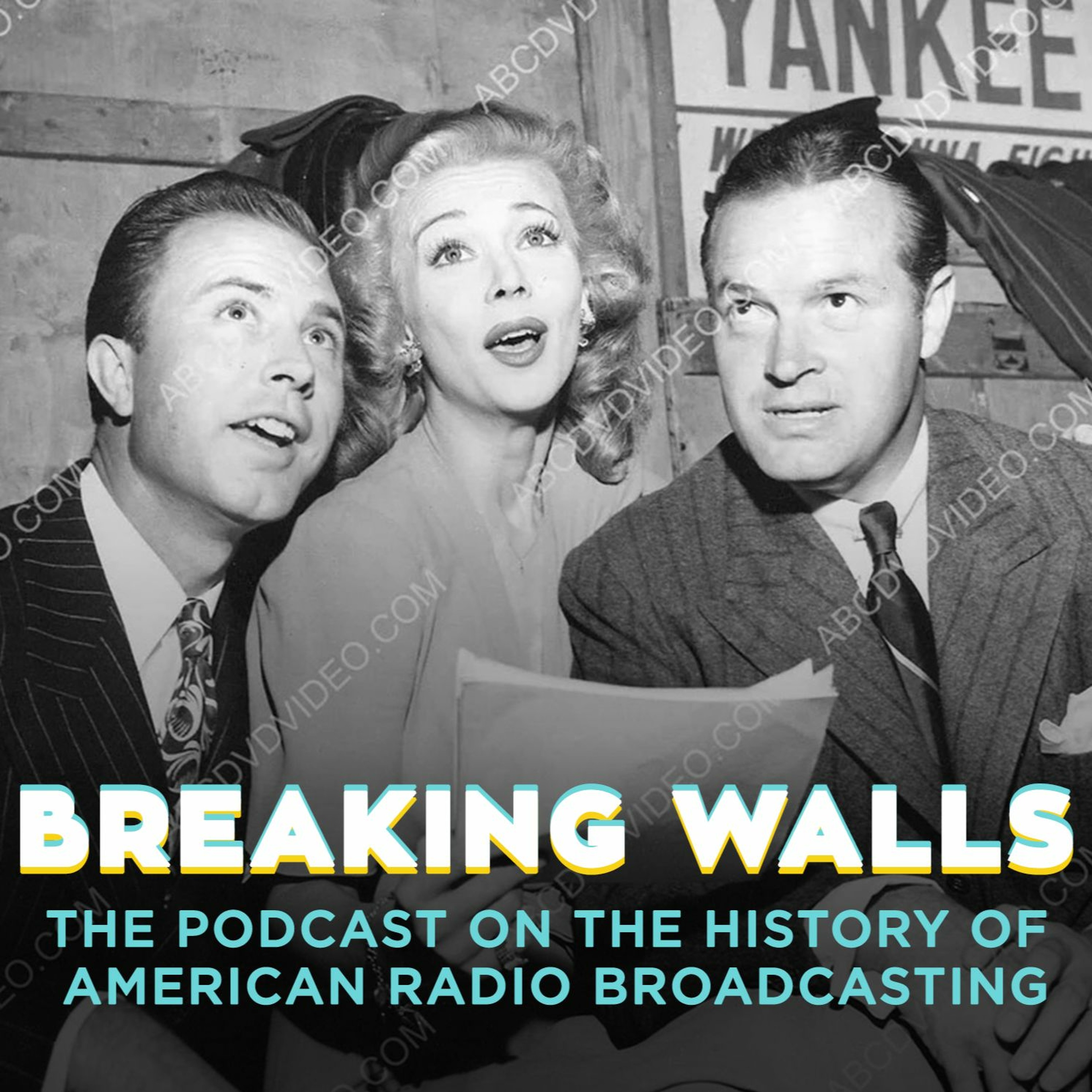

On Tuesday February 22nd, 1944 The Bob Hope Show took to the air with a special broadcast for the Coast Guard. The guest was Carole Landis. Hope’s radio cast from this era is his most famous. Along with Jerry Colona and songstress Frances Langford, the squeaky, man-crazed Vera Vague, voiced by Barbara Jo Allen was tremendous. Blanche Stewart and Elvia Allman played high-society nitwits Brenda and Cobina, modeled after real-life socialites Brenda Frazier and Cobina Wright Jr. Wright filed suit but settled, Hope remembered, when he invited her on the show as a guest. Wendell Niles was often Hope’s announcer for Pepsodent.


On February 15th, 1944 Bob Hope broadcast his program from Santa Ana’s Classification Center. His guest of honor was none other than good friend Bing Crosby. In February of 1944 Frances Langford was twenty-eight years old. She grew up in Florida, and originally trained as an opera singer. A tonsillectomy changed her range and she instead shifted her vocal approach to a more contemporary big band, popular music style. As a teenager, cigar manufacturer Eli Witt heard her sing at an American Legion party and hired her to sing on a local radio show he sponsored. In 1931 Langford moved to Hollywood, appearing on Louella Parsons' radio show. She was soon heard by Rudy Vallée, and in 1935 she made her film debut in Every Night at Eight. That year she became a regular performer on Dick Powell's radio show, which Bob Hope joined in 1937. When The Pepsodent Program launched in 1938 she began a long term engagement with Hope. In February of 1944 Hope, Crosby, and Dorothy Lamour were wrapping filming of Road To Utopia, the fourth in their series of Road To films. Written by Melvin Frank and Norman Panama, the film is about two vaudeville performers at the turn of the twentieth century who go to Alaska to make their fortune. Along the way they find a map to a secret gold mine. While shooting wrapped in 1944, the film wasn’t released until February 27th, 1946. Its screenplay was nominated for an Academy Award the next year.
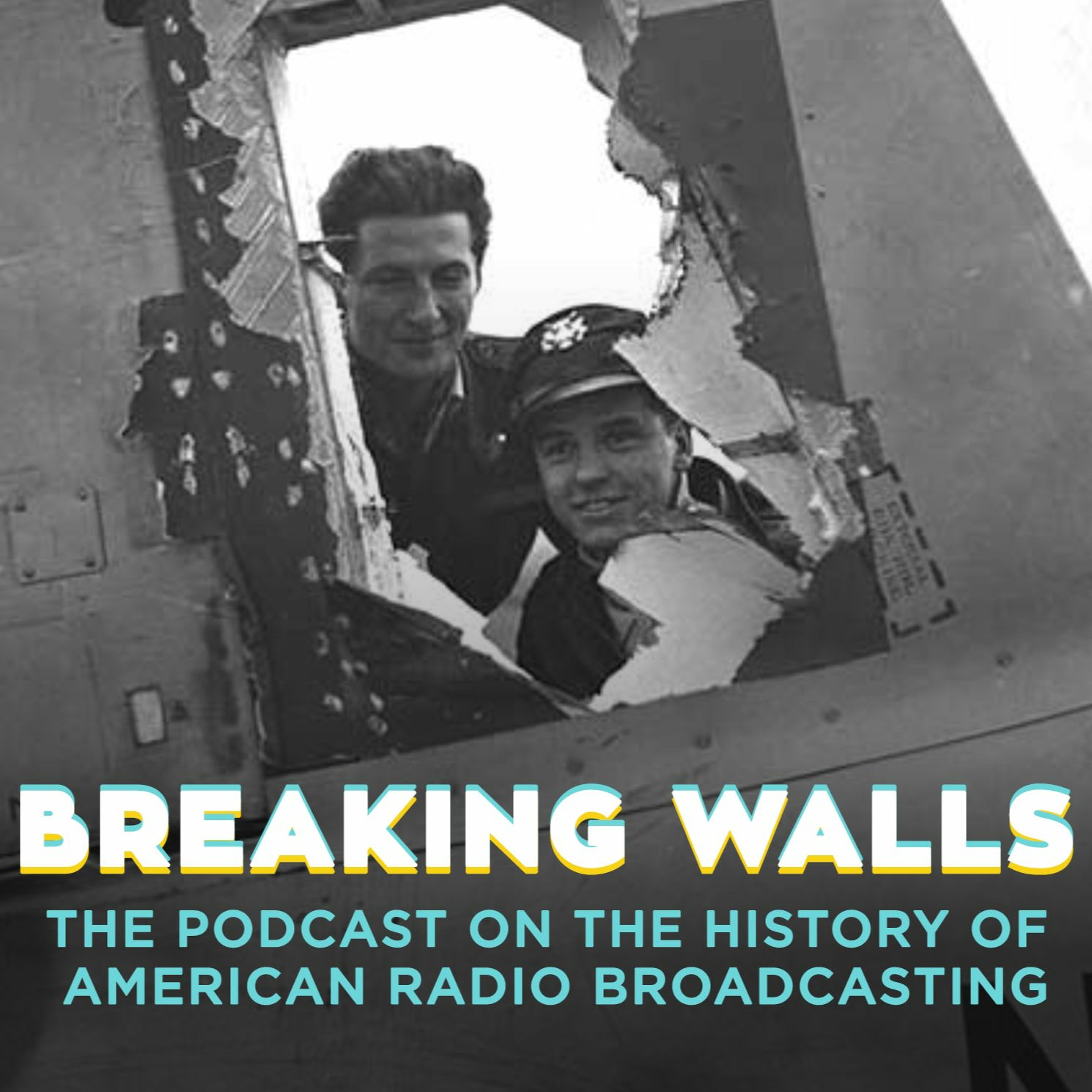

The week of February 13th, 1944 began with the Allies raiding Hong Kong and giving supplies to French resistance fighters. The next day a British submarine sank a German u-boat in a rare Pacific theater battle involving Germans. On Tuesday the 15th, the Soviets began their first offensive in the Battle of Narva while a Japanese cruiser was torpedoed by a U.S. submarine. By the middle of the week the Battle of the Korsun–Cherkassy Pocket ended in a Soviet victory with German forces fleeing for their lives, while American forces launched Operation Hailstone, a massive attack against a Japanese naval and air base in the Caroline Islands. As that was happening the U.S. scored an important victory against Japan in The Battle of Karavia Bay. Simultaneously, eight-hundred allied planes raided Berlin. The Germans would counter two days later by shelling London in the heaviest bombing of the British capital since 1941. This helped lead to NBC’s War Telescope news program on Saturday February 19th, entitled “Britain is a Fortress.” It took to the air at 1:45PM from WEAF in New York. The lieutenant Elmer Peterson interviewed was James Forrest Luma, born on August 27th, 1922 in Helena, Montana. At eighteen he was too young to enter flight training for the U.S., so he signed up for the Royal Canadian Air Force and was sent to England. A month after this broadcast, Lieutenant Luma was involved with only one other pilot in an air raid that saw three German planes shot down and seventeen others retreat in flames. Overall, he shot down five enemy planes in combat and was awarded the Distinguished Flying Cross for his efforts. Later this year, he was transferred to a U.S. Army Air Forces Squadron, serving until July of 1945. James Luma lived to be ninety-six, passing away February 4th, 2019, just shy of seventy-five years to the date of giving this interview to Elmer Peterson. The day after this broadcast, The Allies launched "Big Week", a six-day strategic bombing campaign against the Third Reich, while Erwin Rommel completed a four-day inspection tour of Germany's Atlantic Wall which stretched from Southern France all the way to Northern Norway. He reported to Hitler that the German coastal defenses were up to all requirements, but the Germans knew that the day of a full scale western European invasion by the allied powers was coming.
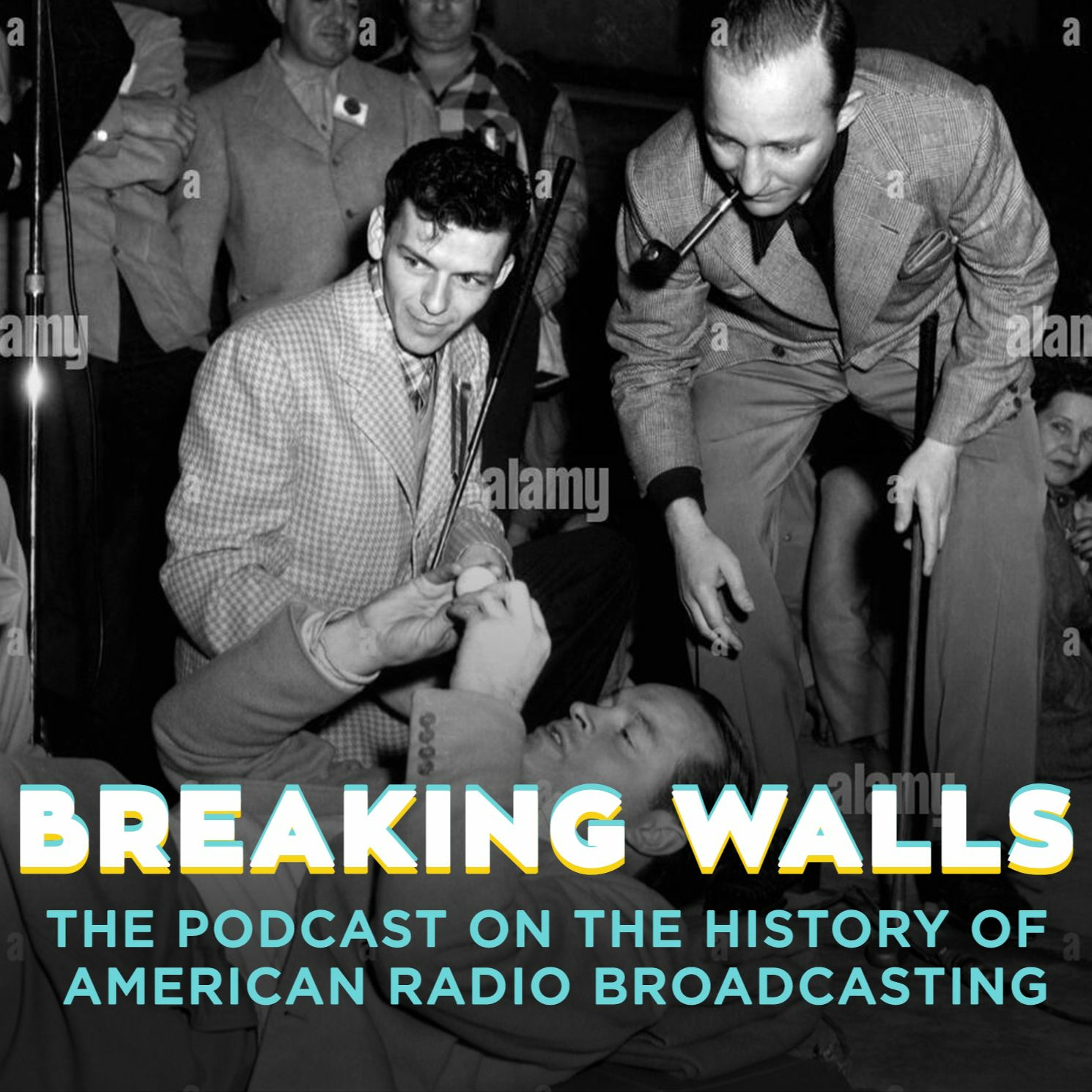

On Saturday February 12th, 1944, Ken Carpenter was announcer for a Command Performance guest-starring Bob Hope, Frank Sinatra, and Judy Garland. Hope had just co-hosted, with Bing Crosby, a pro-amateur golf charity event. Bob Hope did his first remote broadcast from March Field on May 6th, 1941. Initially reluctant to leave the studio, the roar of laughter and applause from that first crowd was so loud, he would recall, that he “got goose pimples” during the broadcast. He was hooked. He spent most of the next seven years on the road, broadcasting from bases, camps, and hospitals. The cast was put on alert, ready to go at the drop of a hat. Frances Langford was given 24-hour notice to “hop a bomber” for Alaska in 1943. They hit one-hundred camps that year, in addition to their weekly radio show. They also went to Europe, doing a show at Messina just after the enemy had fled the town and was still bombarding the area with its artillery. This year, 1944, on a trip to the South Pacific, Hope’s plane had to make a crash landing in Australia. John Steinbeck wrote of Hope, “It is impossible to see how he can do so much, can cover so much ground, can work so hard, and can be so effective.” Newsweek called it “the biggest entertainment giveaway in history.” Many times Hope appeared on Command Performance, broadcast over the Armed Forces Radio Service. Ken Carpenter recalled those shows.
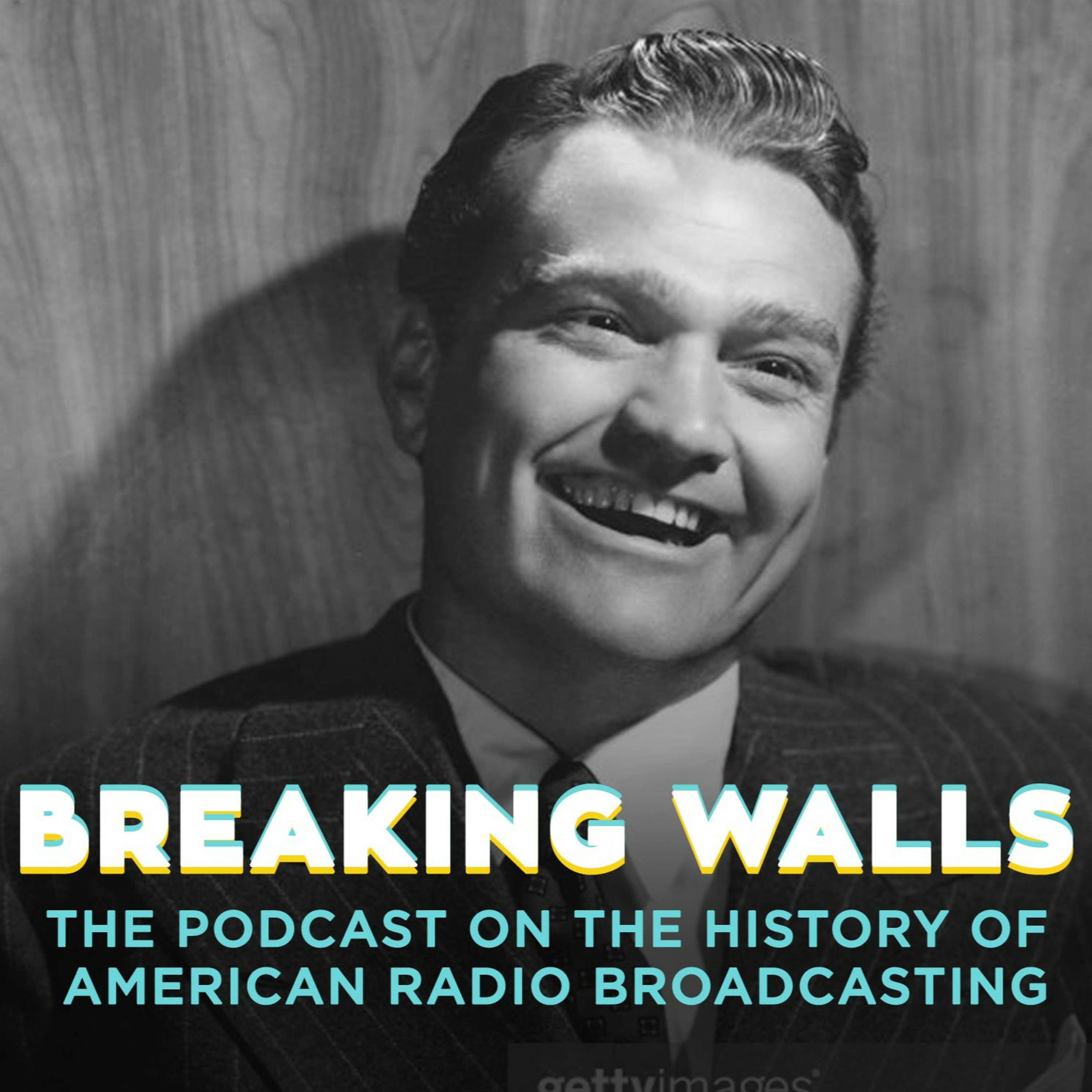

After Bob Hope’s program signed off at 10:30PM eastern war time, The Red Skelton Show signed on. It debuted on Tuesday October 7th, 1941. By February of 1944 it was pulling a rating of 29.9. Ozzie and Harriet Nelson were heavily featured. Skelton was so supercharged that he couldn’t do a pre-show warm up. It left his audience exhausted and practically catatonic during the main show. So Skelton reversed the formula and gave his fans an after-show. Among his peers it was considered the hottest comedy act in town. Lurene Tuttle, who later appeared with Ozzie and Harriet on their own show, also starred on The Red Skelton Show. For three seasons Skelton’s popularity soared, but then he got divorced and lost his marriage deferment. The army drafted Skelton in 1944. MGM and radio sponsor Raleigh Cigarettes tried to help with no avail. The Draft Board also turned down his request to join the Special Services branch for entertainers. Skelton’s last radio program was on D-Day, June 6th, 1944. The next day he was formally inducted as a private. Without its star, the program was discontinued until he could come back from the war. Words at War was an anthology of war stories, “told by the men and women who have seen them happen.” It was produced in cooperation with the Council on Books in Wartime, promising “stories of the battlefronts, of behind-the scenes diplomacy, of underground warfare, of the home front, of action on the seas.” Each show was to be “a living record of this war and the things for which we fight.” First taking to the air on June 24th, 1943 from New York, it was praised by Variety as “one of the most outstanding programs in radio”; by the New York Times as the “boldest, hardest-hitting program of 1944”; and by Newsweek as “one of the best contributions to serious commercial radio in many a year.” Despite airing at 11:30PM on Tuesdays, Words at War stimulated conversation and controversy throughout its two-year run. On Tuesday, February 8th 1944 a story on George Washington Carver was broadcast. When Words At War signed off at midnight, NBC broadcast a ninety minute program for the fourth war bond drive. It was part of an extended effort to raise funds. The night prior at midnight, Ben Grauer hosted this show over NBC.
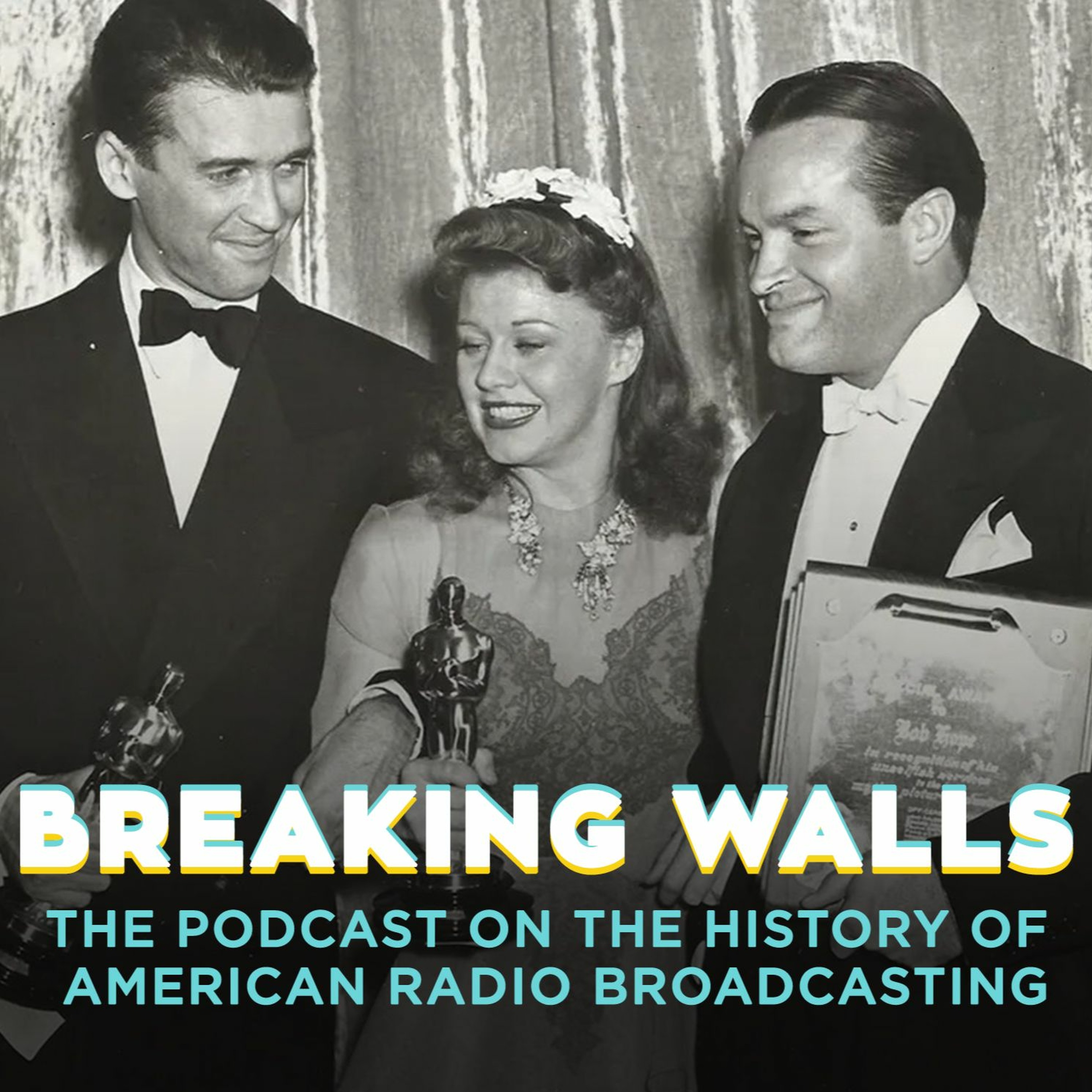

On Tuesday February 8th, 1944 at 10 PM eastern time over WEAF, and at 7PM pacific time over KFI, Bob Hope’s Pepsodent Program signed on live, coast-to-coast from Oceanside, California. The guest was Ginger Rogers, the program features a salute to her new film, Lady In The Dark. It was radio’s top show, pulling a rating that month of 36.2. Nearly twenty-eight million people heard this show, which is even more impressive when you consider how many were overseas fighting World War II. Hope’s top sidekick was Jerry Colonna, perhaps the wildest comic presence on 1940s radio. Colonna had once been a serious trombonist, playing with Goodman, Shaw, and the Dorseys: now he infused Hope’s program with verbal and vocal mayhem. He sported a four-inch walrus mustache and had a comedy style that blew away any attempt at logic. As soon as Colonna began walking to the microphone, the studio audience warned listeners with laughter.” Hope later wrote, there were two sides to Colonna’s persona: “One is the zany, silly moron, and the other is the deep thinking, serious moron.” His songstress was the immensely talented Frances Langford, equally adept at both comedy and drama. But, Hope was the star. As the late John Dunning once said, No one had ever told jokes quite like Bob Hope. His monologues were rapid-fire blasts of comedy, extremely topical and wildly appreciated by his live audience. Radio Life wrote, “Hope tells a gag in three lines. He’ll work for an hour on a one-word change. By the time he goes on the air, he knows his gags by heart.” He employed a team of twelve writers in three, two-man teams. Each were assigned to write the show’s three sections. First came the monologue; then a midshow routine with Colonna or another member of the regular cast; and finally, a sketch for the guest star. It was a true test of endurance. Hope demanded long rehearsals, including a sixty-minute runthrough with a live audience. He’d stand at the microphone, highlighting his script where the big laughs came. When you consider that Hope’s weekly audience was more than each of the first two Super Bowls, it’s easier to understand his point of view. The biggest problem with Hope, said producer Al Capstaff in 1945, was his inevitable tendency to pack the script. It was always thirty-seven minutes long and had to be whittled down joke by joke until only the surefire material remained. The result on the air was a breathless gush, with six laughs a minute guaranteed. But, that was Hope. Even in his 1972 Dick Cavett interview which has been featured throughout this episode of Breaking Walls, an off-the-cuff Hope can’t help but pack one-liner after one-liner in the midst of a genuine, serious, conversation. The Pepsodent Program was enhanced by Hope’s film career. By February of 1944 Hope had starred in seventeen films since the release of The Big Broadcast of 1938, including the first three Road To films with Bing Crosby.
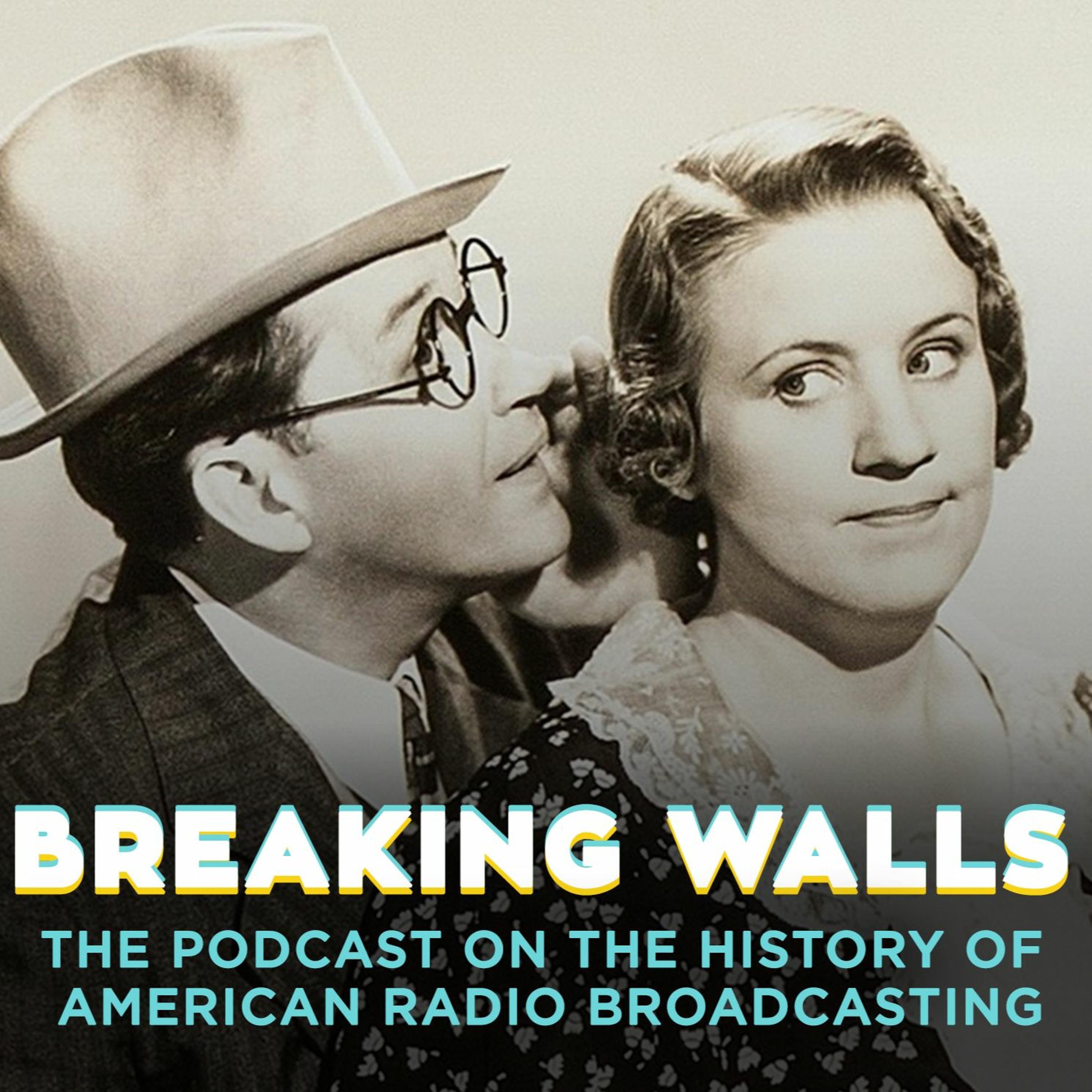

If you’d have tuned your radio to NBC’s New York flagship, WEAF, at 7:30 PM on Tuesday February 8th, 1944 you’d have heard Ronald Coleman host the Autolite Sponsored, Everything For the Boys. The guest star was Greer Garson. NBC owned the ratings on Tuesdays with six of the top seven shows. Opposite of Everything For The Boys, CBS ran a concert, WOR-Mutual ran news, and WJZ of the Blue Network ran The Girl Back Home. “Barkley Square” is a fantasy play about a man who desires so much to go back in time that he somehow achieves it. At 8:00PM, The Ginny Simms Show took to the air. That month, the show’s rating was 14.6. Roughly eleven million people tuned in. Opposite, CBS aired Big Town, WOR aired The Black Castle, while WJZ aired news. At 8:30 NBC aired A Date With Judy, a female-driven situation comedy starring Louise Erickson. Opposite CBS ran The Judy Canova Show, while WJZ aired Duffy’s Tavern and WOR ran the quiz show, Battle of the Boroughs. This was the most competitive time slot as far as ratings went. In February A Date With Judy pulled a 9.6, while The Judy Canova Show pulled a 12.6, and Duffy’s Tavern had a 14.6. Louise Erickson was three weeks shy of her sixteenth birthday. She held the role until 1949. The series was popular enough that, in response, CBS developed Meet Corliss Archer. After The Molle Mystery Theater aired at 9 PM, the three top-rated shows on radio aired in succession, beginning with the just-heard Jim Jordan co-starring in Fibber McGee and Molly. The February 8th episode was called “Homemade Ice Cream” and had a rating of 35.7. More than twenty-seven million people tuned in. After Fibber McGee and Molly signed off, Bob Hope’s Pepsodent Program signed on at 10PM.
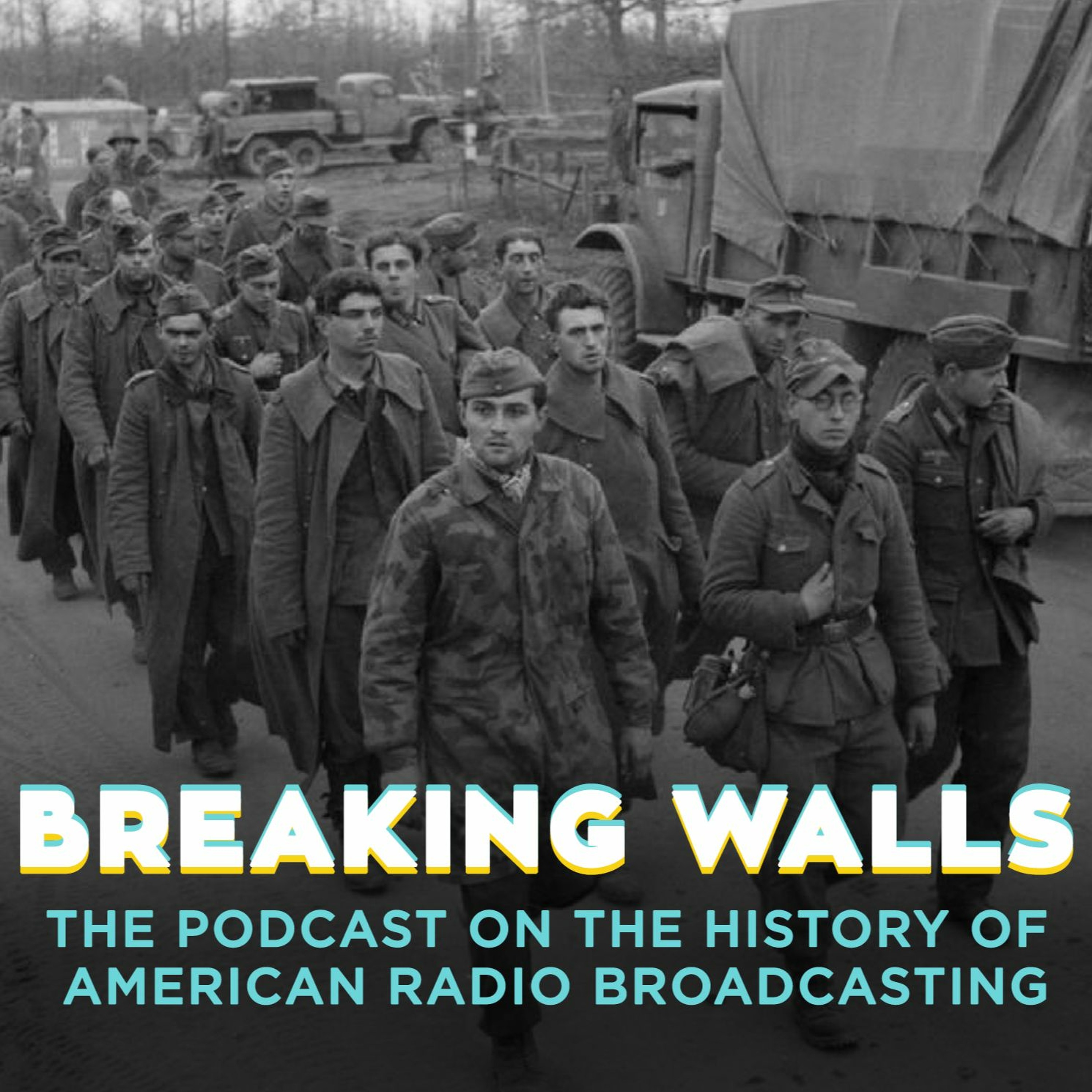

As February 1944 got underway the Soviet Leningrad Front was fighting a heavy ground war against the German eighteenth army in Estonia. The battle would last the entire month with the Soviet’s eventually winning. French Resistance unified under the French Forces of the Interior. The Germans won the Battle of Cisterna in Italy against the Allied army, but at that point, four months before the Normandy invasion, the Allies kept pushing into Italy. Meanwhile, the Battle of the Admin Box began in the Burma campaign with Japanese forces attempting to counter-attack an Allied offensive, trying to draw Allied reserves from the Central Front in Assam, where the Japanese were preparing their own major offense. On the morning of Saturday February 5th, 1944 at 7AM eastern war time, the NBC World News Roundup signed on from WEAF in New York. On the date of this broadcast, Allied powers were slowly inching into western Europe with the body count mounting, while Soviet forces captured cities in Ukraine. Overnight on February 6th into the 7th Soviet bombers attacked Helsinki, the heaviest bombing of the Finnish capital since the war began. Meanwhile, a growing border issue between Poland and Russia caused President Roosevelt to step in, Asking Stalin not to allow it to undermine future international co-operation. Roosevelt proposed that the Polish Prime Minister accept the desired territorial changes and then be allowed to alter the makeup of his government without any evidence of foreign pressure. Wartime needs stretched agricultural production. The U.S. not only had to feed its own civilian and military population, but many of the Allies relied on America’s bread basket. In addition, German U-boats sank hundreds of food-laden ships bound for Britain. Canned fruits and vegetables were rationed starting March 1st, 1943. Less canned goods meant less civilian tin use and less strain on the heavily taxed rail and road systems. Even as early as 1941, civilians were encouraged to grow their own produce to supplement their food. These were referred to as Victory Gardens. The Department of Agriculture produced pamphlets to guide urban and suburban gardeners. Magazines and newspapers published helpful articles, and patriotic posters urged participation. In the Pacific northwest state of Oregon, wartime farm labor shortages led to the creation of the U.S. Crop Corps in 1943. It umbrellaed labor services like the Women's Land Army and the Victory Farm Volunteers. The latter was a group that got parental consent to employ youths aged eleven to seventeen. Migrant workers from Mexico also helped, made possible thanks to the joint U.S./Mexican "Bracero Program." By 1944 farmers could request help from POW laborers held at Oregon Army camps. More than thirty-five-hundred prisoners, mostly Germans, worked in Oregon fields.


He was born Leslie Townes Hope on May 29th, 1903 in Eltham, England. The fifth of seven sons, his parents were William Henry Hope, a stonemason from Somerset, and Welsh mother Avis, a light opera singer who later worked as a cleaner. The family eventually moved to Bristol for a time before emigrating to the U.S. aboard the SS Philadelphia, passing through Ellis Island on March 30th, 1908, before settling in Cleveland, Ohio. He earned pocket money by singing, dancing, and performing, winning a prize in 1915 for his impersonation of Charlie Chaplin. In December 1920, Hope and his brothers became U.S. citizens when their British parents became naturalized Americans. The next year, he was assisting his brother with the electric company when a horrific accident crushed his face. The reconstruction of which led to his distinctive appearance. In the 1920s Hope formed a dance act called the "Dancemedians" with George Byrne and the Hilton Sisters, conjoined twins who performed a tap-dancing routine on the vaudeville circuit. He acted in a double with Byrne, eventually making his way to New York. The act flopped, pushing Hope to strike out on his own, changing his first name to Bob in 1929. He spent five years on the Vaudeville circuit, failing an RKO screen test in 1930, but he broke out on Broadway, first in Ballyhoo of 1932, and then opposite Tamara Drasin and Fred MacMurray in Roberta, which played two-hundred ninety-four times between November of 1933 and July of 1934. Meanwhile in 1932, he appeared on Major Bowes’ Capitol Family Hour and later on Rudy Vallee’s Fleischmann Yeast Hour on June 3rd, 1933 alongside Jimmy Wallington. In 1933 he married his vaudeville partner Grace Troxell. They divorced the next year and Hope was soon with another performer, Dolores Reade. Though they spent the rest of their lives together, and Hope was notoriously unfaithful, a legal record of their marriage is vague at best. The couple would eventually adopt four children. In 1934 Hope signed a six-short contract with Educational Pictures. Radio soon followed. By then, he’d developed performing chops so strong, he could sing, dance, or act in any number of ways. On Friday January 4th, 1935 over NBC’s Blue Network, he debuted in The Intimate Review. This first series was short-lived: ratings were mediocre, but Hope found his first radio foil, comedienne Patricia Wilder, who, with her thick southern accent, went by Honey Chile. The Intimate Review went off the air in April, but on September 14th, 1935, Hope was back on radio over CBS with The Atlantic Family. While he was on for CBS in 1936, Hope starred on Broadway in Ziegfeld’s Follies with Fanny Brice; and in Cole Porter’s Red, Hot, and Blue, with Ethel Merman and Jimmy Durante. The next May 9th, 1937, Hope was back on radio for NBC’s Blue Network on Sundays at 9PM with The Rippling Rhythm Revue. During this run Paramount beckoned: The Big Broadcast of 1938 was to begin filming, and Hope was offered a part. He moved to Hollywood, continuing his monologues by transcontinental wire. The Rippling Rhythm Revue was canceled in September, but three months later Hope joined The Dick Powell Variety Show on December 29th, 1937. The Big Broadcast of 1938 was released on February 11th, and suddenly, Hope was a huge star. On Tuesday, September 27th, 1938 at 10PM, The Pepsodent Show took to the air. That first season, Hope’s 15.4 rating was good enough for twelfth overall. In 1939 he was up to 23.1 and fifth. In 1941 his rating was 26.6 and fourth, and finally in 1942 his Crossley rating cracked thirty points, while his Hooper cracked forty. Hope soon began a five year run as radio’s top comedian.


In Breaking Walls episode 147 we go into the studio with Himan Brown for the CBS radio drama relaunch in 1974. —————————— Highlights: • First a January 1974 World News Roundup • Himan Brown’s Big Idea to Relaunch Radio Drama on CBS in 1974 • Tuning Into January 8, 1974’s Episode of The CBS Radio Mystery Theater • Mason Adams in I Warn You Three Times • January 13, 1974 World News Roundup — Nixon Still On Hot Seat • Producing The CBS Radio Mystery Theater With The New York Radio Crew • Dead For a Dollar • The CBS Radio Mystery Theater Beyond January 1974 • Looking Ahead to February by Looking Back to Bob Hope —————————— The WallBreakers: http://thewallbreakers.com Subscribe to Breaking Walls everywhere you get your podcasts. To support the show: http://patreon.com/TheWallBreakers —————————— The reading material used in today’s episode was: • On The Air — By John Dunning • The CBS Radio Mystery Theater, An Episode Guide and Handbook to Nine Years of Broadcasting — By Gordon Payton and Martin Grams, Jr. As well as articles from: • The Cleveland Plain Dealer —————————— On the interview front: • Himan Brown, Larry Haines, Mary Jane Higby, Joseph Julian, and E.G. Marshall spoke with Dick Bertel and Ed Corcoran for WTIC’s The Golden Age of Radio. Hear these interviews at Goldenage-WTIC.org • Joan Banks and George Petrie were with SPERDVAC. For more info, go to SPERDVAC.com • Mason Adams spoke with Chuck Schaden. Hear these chats at Speakingofradio.com —————————— Selected music featured in today’s episode was: • January Stars — By George Winston • Amid Flowers, Beside the River, Under a Spring Moon — By Elizabeth Hainen • Perfida — By Jimmy Dorsey And His Orchestra —————————— A special thank you to Ted Davenport, Jerry Haendiges, and Gordon Skene. For Ted go to RadioMemories.com, for Jerry, visit OTRSite.com, and for Gordon, please go to PastDaily.com. —————————— Thank you to: Tony Adams Steven Allmon Orson Orsen Chandler Phil Erickson Jessica Hanna Perri Harper Thomas M. Joyce Ryan Kramer Gerrit Lane Earl Millard Gary Mollica Barry Nadler Christian Neuhaus Ray Shaw Filipe A Silva John Williams Jim W. —————————— WallBreakers Links: Patreon - patreon.com/thewallbreakers Social Media - @TheWallBreakers
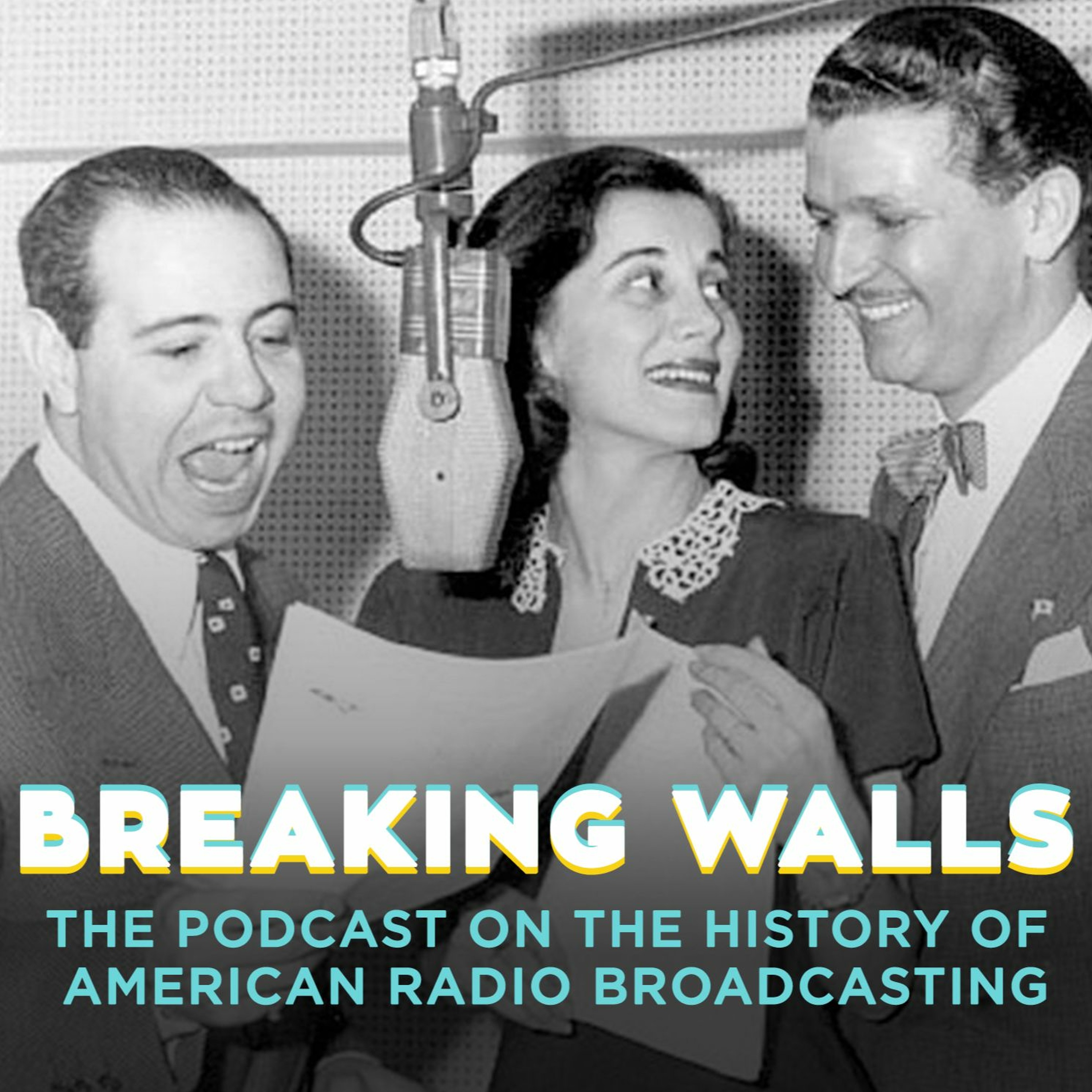

This is the fifth episode of The CBS Radio Mystery Theater. Entitled "No Hiding Place," it was written by longtime writer of The Shadow, Sidney Slon. It stars Larry Haines, Jackson Beck, Anne Meacham, Sidney Walker and Tom Keena. The Plot: Charles Powel, executive vice president of a large company and engaged to the boss’ daughter, seems to have everything going for him. But Clint Livets, who knows the secret of Charles’ past, shows up with a dirty hand and blackmail on his mind.


Well, that brings our look at the launch of The CBS Radio Mystery Theater to a close. We’ve spent the past five months making our way forward in time from 1957, to 1963, to 1973, and finally 1974. But, next month on Breaking Walls we’ll head back to the middle of radio’s golden age and focus on one of the most successful comedians of all-time. Next time on Breaking Walls, it’s February of 1944 and between entertaining troops, smashing box office numbers, and notoriously carousing, the man jokingly referred to by friend Bing Crosby as “ol trowel nose,” Bob Hope, is radio’s top comedian. For the first time in six years of Breaking Walls episodes, we’ll focus on the man who always reminded us to say, thanks for the memories. The reading material used in today’s episode was: • On The Air — By John Dunning • The CBS Radio Mystery Theater, An Episode Guide and Handbook to Nine Years of Broadcasting — By Gordon Payton and Martin Grams, Jr. As well as articles from: • The Cleveland Plain Dealer —————————— On the interview front: • Himan Brown, Larry Haines, Mary Jane Higby, Joseph Julian, and E.G. Marshall spoke with Dick Bertel and Ed Corcoran for WTIC’s The Golden Age of Radio. Hear these interviews at Goldenage-WTIC.org • Joan Banks and George Petrie were with SPERDVAC. For more info, go to SPERDVAC.com • Mason Adams spoke with Chuck Schaden. Hear these chats at Speakingofradio.com —————————— Selected music featured in today’s episode was: • January Stars — By George Winston • Amid Flowers, Beside the River, Under a Spring Moon — By Elizabeth Hainen • Perfida — By Jimmy Dorsey And His Orchestra —————————— A special thank you to Ted Davenport, Jerry Haendiges, and Gordon Skene. For Ted go to RadioMemories.com, for Jerry, visit OTRSite.com, and for Gordon, please go to PastDaily.com. —————————— Thank you to: Tony Adams Steven Allmon Orson Orsen Chandler Phil Erickson Jessica Hanna Perri Harper Thomas M. Joyce Ryan Kramer Earl Millard Gary Mollica Barry Nadler Christian Neuhaus Ray Shaw Filipe A Silva John Williams Jim W. ——————————


Cleveland Plain Dealer, July 28th, 1974 — CBS 'Theater's' Brown Burns about Serling "I'm proud of every minute we're on the air...and I'll stand up for every single show I do." Speaking of The CBS Radio Mystery Theater was Himan Brown, executive producer of the nationwide show that premiered January 6th and has garnered good ratings. His comments were the beginning of a rebuttal to negative remarks made about the show and The Zero Hour on these pages June 16th by Rod Serling, who narrated the latter program, which was dropped by Mutual last Friday. Brown burned. “My stories have complete relevancy to all that's going on now--exorcism, reincarnation--all stories of the moment. We're doing contemporary stories with the best writers and actors in the business. I think radio drama, contrary to what Serling says, is here forever and a day--and never will be off the networks again." Serling has written TV shows, movies, and books, but his only previous radio drama was written while he was a summer replacement at WLW in Cincinnati. "It’s all sour grapes. Serling's relationship to radio has been a total failure," Brown said. “His criticism of his own show is a complete slur of his own integrity, because in the past he lent his narrative name or talents to what he wrote. The implication is that he was much involved with the stories on The Zero Hour and that's a fake.” Brown believes in Mystery Theater with all his heart. “It took me fifteen years to sell it, but it's been a happy fulfillment." The show has gone so well that Brown has a verbal renewal to go into a second year. He wouldn't discuss it, but Brown admitted that he has packaged a two-hour weekly Sunday drama series for CBS Radio that would debut early next year. Getting back to Mystery Theater, Brown admitted that he can't bat one-thousand on the series. "But I'll bat eight-hundred." He produces, directs, edits scripts, casts the shows and signs the checks. “The show has gone far beyond anything I ever hoped for. People are listening seven nights a week. The minute we put on the first repeats, the stations' switchboards lit up.” The first year's contract calls for one-hundred ninety-five new shows and one-hundred seventy repeats. Usually produced in New York, the program will invade Hollywood for talent there for the recording of eight mysteries, beginning August 5th. Born in Manhattan and with degrees from City College of New York and Brooklyn Law School--although he has never practiced law--Brown moved into TV production when radio drama fell by the wayside some fifteen years ago. Now, with The CBS Radio Mystery Theater, he's back home. "It's the greatest homecoming a man could possibly want." — Raymond P. Hart Although Rod Serling was disappointed with Mutual broadcasting’s treatment of The Zero Hour, as covered in the previous episode of Breaking Walls, in 1974 Himan Brown’s Mystery Theater won a Peabody Award for helping to usher in a new era of radio entertainment. It would run for eight more years until finally going off the air on December 31st, 1982. More than fifteen hundred episodes were produced. Most survive in listening quality.